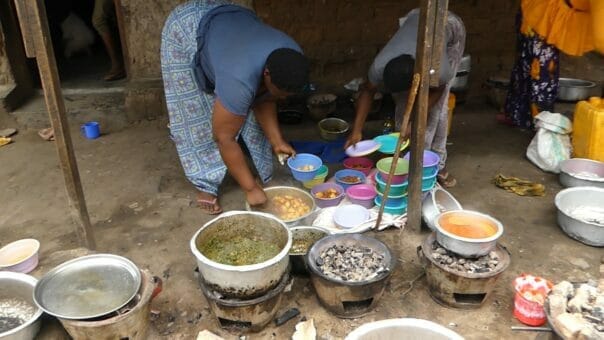
Mar 11, 2021 | Non categorizzato
Community microcredit and microfinance to support the growth of expanding projects. Rose’s testimony on the importance of the initiative supported by Amu. BIRASHOBOKA means “IT CAN BE DONE” in Kirundi. It is from this conviction that the Community Microcredit and Microfinance project was born in Burundi (Africa). In spite of the great difficulties in which the country still finds itself – it is the second most densely populated country in Africa and one of the five countries with the highest poverty index in the world – Amu, Azione per un Mondo Unito-Onlus, a non-governmental development organisation inspired by the spirituality of the Focolare Movement, has been supporting the capacities of local communities for some time. Since 2007, in fact, in full synergy with the non-profit organisation CASOBU (Cadre Associatif des Solidaires du Burundi), it has been helping local families in a process of training and of improving their living conditions. 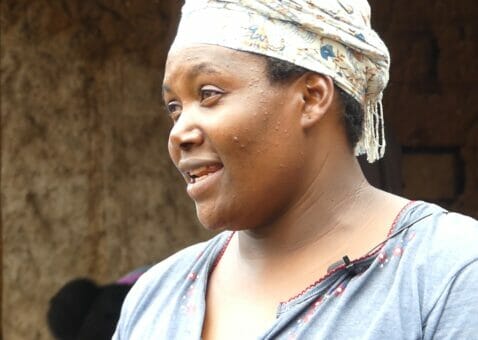 With the “It can be done!” project, it aims to create community microcredit groups whose members can support themselves to create jobs and, in a second phase, create a community microfinance group to support the growth of the expanding projects. Rose tells us: “We started our group 13 years ago. With the first loan I got, I remember very well that I didn’t do anything in particular, I bought clothes and goods that I needed, but the rest I wasted. At the beginning, I didn’t know how to start a business and what often happened was that I had difficulty paying back the loan I had received. Then I realised that I couldn’t keep taking out loans without a concrete project and I finally decided to start the restaurant project with the first 300,000 Fbu (150 €). I started buying pots and pans, dishes and gradually opened the restaurant. It was 2009, I didn’t have any workers yet. At that time, my children helped me in the kitchen and I went by bus to take the food to the city where I had my customers.
With the “It can be done!” project, it aims to create community microcredit groups whose members can support themselves to create jobs and, in a second phase, create a community microfinance group to support the growth of the expanding projects. Rose tells us: “We started our group 13 years ago. With the first loan I got, I remember very well that I didn’t do anything in particular, I bought clothes and goods that I needed, but the rest I wasted. At the beginning, I didn’t know how to start a business and what often happened was that I had difficulty paying back the loan I had received. Then I realised that I couldn’t keep taking out loans without a concrete project and I finally decided to start the restaurant project with the first 300,000 Fbu (150 €). I started buying pots and pans, dishes and gradually opened the restaurant. It was 2009, I didn’t have any workers yet. At that time, my children helped me in the kitchen and I went by bus to take the food to the city where I had my customers.  As I became known, the number of customers increased and I was able to hire workers. I am proud that through the salary they receive I also participate in the fulfilment of their dreams.” Rose, who is happy to have embarked on this path, today manages to provide a salary for five other families besides her own. Now she would like to improve and expand her business, for example by renting a bigger premises, where she could cook and reduce the running costs of the restaurant and travel expenses. It is a very brave decision because there is a big investment involved and Rose does not have the collateral or the guarantees needed to access a loan from any bank. And it is for Rose and many other people who, like her, would like to expand their businesses that the AMU and CASOBU project was set up, supporting the start-up of a community microfinance institution to offer savings and credit services to people with big dreams but who still today cannot access banks. To support the project, click here
As I became known, the number of customers increased and I was able to hire workers. I am proud that through the salary they receive I also participate in the fulfilment of their dreams.” Rose, who is happy to have embarked on this path, today manages to provide a salary for five other families besides her own. Now she would like to improve and expand her business, for example by renting a bigger premises, where she could cook and reduce the running costs of the restaurant and travel expenses. It is a very brave decision because there is a big investment involved and Rose does not have the collateral or the guarantees needed to access a loan from any bank. And it is for Rose and many other people who, like her, would like to expand their businesses that the AMU and CASOBU project was set up, supporting the start-up of a community microfinance institution to offer savings and credit services to people with big dreams but who still today cannot access banks. To support the project, click here
Lorenzo Russo
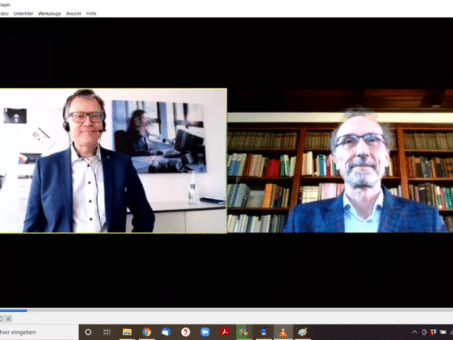
Mar 9, 2021 | Non categorizzato
The Focolare Movement in Germany, together with other Catholic organisations, organised an online conference on the search for God in a world where He seems increasingly absent. This contributed also to the Catholic Church’s synodal process in Germany.  “God disappears – and maybe, could this be necessary? God disappears – is it He perhaps who wants it this way?” These were the provocative questions that guided the programme of an online conference that was held in Germany on February 26-27. It was organized by the Focolare Movement in Germany together with the “Herder-Korrespondenz”, a monthly Catholic magazine, and the Catholic Academy of the Dresden-Meissen Diocese in the former GDR. It was meant to address one of the most urgent questions many Christians ask today: “What do we have to do and how do we have to move in a world where God seems to be no longer present?” 350 participants from Germany, Austria, Switzerland and other European countries were ready to discuss in depth the causes of an ever-increasing absence of God in society and in the lives of individuals. As Heinrich Timmerevers, the Bishop of Dresden said in his opening speech, they were even ready to ask the shocking question, “Is it perhaps the Church itself that is driving people away from God because of the crisis caused by abuse?” In a message sent to the participants, Margaret Karram, President of the Focolare Movement said that the theme of God’s absence touches the core of the Movement’s spirituality, that springs from the figure of Jesus crucified and forsaken by men and God, “the hardest moment for Jesus and at the same time the most divine, the key to contribute towards fraternity wherever it is lacking […] and to reach out to those who suffer most because of this darkness”. During these two days, there were moments of critical and stimulating reflection on all that motivates a firm faith in God, despite a growing tendency towards secularism, and also on new forms of interest – especially in young people – in something transcendent that is passed on through authentic stories, experiences of deep attractiveness and a curiosity to explore new reflections on the meaning of life. During this conference, the awareness that Churches are often no longer able to meet the new religious needs of today’s men and women, was also present. The talk delivered by the German theologian Julia Knop was very strong; it was almost shocking. She started from the debate on the abuse of power and sexual violence by clerics and consecrated persons, and then continued to show that an erosion of trust in the Church is also being felt among its most faithful members. The professor of dogmatics claimed that the Church’s crisis is closely linked to the faith crisis. Stefan Tobler, the Reformed theologian stated that the absence of God could also prove to be an opportunity. While presenting traces of the mysticism in Madeleine Delbrêl, Mother Teresa of Calcutta and Chiara Lubich, he pointed out that the experience of God that vanishes could become precisely the place where God reveals himself. “God is found precisely where he seems furthest away. It is therefore not a question of bringing him to the world, but of discovering him in the world”.
“God disappears – and maybe, could this be necessary? God disappears – is it He perhaps who wants it this way?” These were the provocative questions that guided the programme of an online conference that was held in Germany on February 26-27. It was organized by the Focolare Movement in Germany together with the “Herder-Korrespondenz”, a monthly Catholic magazine, and the Catholic Academy of the Dresden-Meissen Diocese in the former GDR. It was meant to address one of the most urgent questions many Christians ask today: “What do we have to do and how do we have to move in a world where God seems to be no longer present?” 350 participants from Germany, Austria, Switzerland and other European countries were ready to discuss in depth the causes of an ever-increasing absence of God in society and in the lives of individuals. As Heinrich Timmerevers, the Bishop of Dresden said in his opening speech, they were even ready to ask the shocking question, “Is it perhaps the Church itself that is driving people away from God because of the crisis caused by abuse?” In a message sent to the participants, Margaret Karram, President of the Focolare Movement said that the theme of God’s absence touches the core of the Movement’s spirituality, that springs from the figure of Jesus crucified and forsaken by men and God, “the hardest moment for Jesus and at the same time the most divine, the key to contribute towards fraternity wherever it is lacking […] and to reach out to those who suffer most because of this darkness”. During these two days, there were moments of critical and stimulating reflection on all that motivates a firm faith in God, despite a growing tendency towards secularism, and also on new forms of interest – especially in young people – in something transcendent that is passed on through authentic stories, experiences of deep attractiveness and a curiosity to explore new reflections on the meaning of life. During this conference, the awareness that Churches are often no longer able to meet the new religious needs of today’s men and women, was also present. The talk delivered by the German theologian Julia Knop was very strong; it was almost shocking. She started from the debate on the abuse of power and sexual violence by clerics and consecrated persons, and then continued to show that an erosion of trust in the Church is also being felt among its most faithful members. The professor of dogmatics claimed that the Church’s crisis is closely linked to the faith crisis. Stefan Tobler, the Reformed theologian stated that the absence of God could also prove to be an opportunity. While presenting traces of the mysticism in Madeleine Delbrêl, Mother Teresa of Calcutta and Chiara Lubich, he pointed out that the experience of God that vanishes could become precisely the place where God reveals himself. “God is found precisely where he seems furthest away. It is therefore not a question of bringing him to the world, but of discovering him in the world”.
Joachim Schwind
Mar 8, 2021 | Non categorizzato
On Saturday 6 March 2021, during Pope Francis’ apostolic journey to Iraq, an interreligious meeting was held in the Plain of Ur of the Chaldees. At the end of the meeting, an oration was intoned inspired by the figure of the patriarch Abraham, a common father in the faith for Christians, Jews and Muslims. Here is the text. Almighty God, our Creator, you love our human family and every work of your hands: As children of Abraham, Jews, Christians and Muslims, together with other believers and all persons of good will, we thank you for having given us Abraham, a distinguished son of this noble and beloved country, to be our common father in faith. We thank you for his example as a man of faith, who obeyed you completely, left behind his family, his tribe and his native land, and set out for a land that he knew not. We thank you too, for the example of courage, resilience, strength of spirit, generosity and hospitality set for us by our common father in faith. We thank you in a special way for his heroic faith, shown by his readiness even to sacrifice his son in obedience to your command. We know that this was an extreme test, yet one from which he emerged victorious, since he trusted unreservedly in you, who are merciful and always offer the possibility of beginning anew. We thank you because, in blessing our father Abraham, you made him a blessing for all peoples. We ask you, the God of our father Abraham and our God, to grant us a strong faith, a faith that abounds in good works, a faith that opens our hearts to you and to all our brothers and sisters; and a boundless hope capable of discerning in every situation your fidelity to your promises. Make each of us a witness of your loving care for all, particularly refugees and the displaced, widows and orphans, the poor and the infirm. Open our hearts to mutual forgiveness and in this way make us instruments of reconciliation, builders of a more just and fraternal society. Welcome into your abode of peace and light all those who have died, particularly the victims of violence and war. Assist the authorities in the effort to seek and find the victims of kidnapping and in a special way to protect women and children. Help us to care for the earth, our common home, which in your goodness and generosity you have given to all of us. Guide our hands in the work of rebuilding this country, and grant us the strength needed to help those forced to leave behind their homes and lands, enabling them to return in security and dignity, and to embark upon a new, serene and prosperous life. Amen.
Mar 8, 2021 | Non categorizzato
Love for God and neighbour gains substance, depth and authenticity only if it passes through pain, if it is purified by the cross that Jesus invites us to welcome. But what cross are we talking about? Chiara Lubich’s answer in the following reflection is very precise: each of us has his or her own very particular and personal cross. […] “All things God works for good [but] for those who love Him.” (cf. Rom 8,28). To love God! We certainly do want to love Him. But, when are we sure that we are loving Him? It is not only when we give our hearts to Him in a moment when everything is going well, because that would be easy, and beautiful, but could also be just an enthusiastic reaction or one mixed with personal interest or love for ourselves, and not for Him. We can be certain we love Him if we do so also in adverse situations; furthermore, to guarantee true love for Him, we have decided to prefer Him, above all, in everything that hurts us. To love God in our obstacles and in our pains is always true, sure love. We express this kind of love with the words: to love Jesus crucified and forsaken. […] But which cross, which Jesus Forsaken, must we desire to love? Certainly not a vague cross, as if to say: I want to make my own, […] the sufferings of humanity. Not the cross which can be a product of our imagination; for example, dreams of a martyrdom that may never come about. To be His follower, Jesus said, “Whoever wants to come after me must take up his cross” (cf. Lk 9:23). His personal cross! Therefore, everyone must love their own cross, their own Jesus Forsaken. If, in fact, at a certain moment of our lives, Jesus had appeared before us and because of his great love for us had asked us to follow Him, to choose Him, to — as if to say— to take Him as our spouse, He didn’t intend to manifest Himself to us in just a vague way, but instead in a very precise way. He asked us to embrace Him in all those pains, worries, sicknesses, temptations, in those situations, persons and responsibilities that touch our very person, to the point of being able to say: “This is my cross,” or even better, “This is my Spouse!” All of us have our own personal Jesus Forsaken, which is not the one of our neighbour, nor of anyone else; but really our own. Therefore, if we learn to read beyond the trauma of our various personal sufferings, and see the love of God for each of us, life becomes magnificent, and draws us ever closer to our Jesus Forsaken, to embrace Him, as the saints have done, and to yearn to see Him transformed in us in our own personal resurrection. […] In order not to lose any time, each of us can make a brief examination of his or her own present situation, and then decide, with the help of God, to say yes to all those things to which we want to say no, but know are the will of God. […] Let’s get up in the morning with this proposal in our heart: “I will live today for the sole purpose of loving my Jesus Forsaken.” Everything else will fall into place. The Risen Lord will live in each of us and among us. […]
Chiara Lubich
(From a telephonic conference call, 16 August 1984)
Mar 5, 2021 | Non categorizzato
The story of an “extended” family that is opening up to a love that is not taken for granted Bringing a child, a young person or an adult into the family is always a challenge. Complex, not obvious in any way, both in its development and in its outcome which is never concluded. Looking at these “extended families” from the outside, one feels a mixture of esteem and amazement, almost as if the serenity they show is the result of an indecipherable alchemy of love – an almost romantic vision. It is hard to imagine how complex it is to bring together different sensitivities, cultures and habits, as well as the practical considerations of needs, schedules and languages, in an alliance where the many ‘I’s’ merge into a ‘fluid We’ without friction or, better still, with well-oiled gears. To then feel like one single family is an achievement that is not without hardship, doubts and disappointments. “Welcoming Therese into our family,” said Sergio and Susanna from the focolare community in Vinovo, near Turin, Italy, “has not been easy”. Their story is straightforward, in no way sugar-coated which makes it all the more authentic. What kept them going in this decision was the desire to live their family life as a gift for others and feel the spiritual presence of Jesus as the fruit of mutual love. The decision to open their doors and hearts to a young African mother who arrived in Italy as a refugee was taken with the agreement of their daughters, Aurora and Beatrice, aged 20 and 17. The first difficulties arose when they tried to combine their various needs. “Beatrice likes to plan everything,” says Susanna. “In the mornings every minute is accounted for but sometimes Therese would get up earlier and use the bathroom. This was a problem for her, but gradually she learned to ‘create family’ with her, simply asking her to agree on the use of the bathroom. Aurora, on the other hand, immediately decided to share her wardrobe with Therese and helped her with her studies.” The main challenge is to overcome the silent, corrosive opposition between ‘us’ and ‘the other’ and welcome the other into the intimate dimension of our lives, enlarging the ‘we’. In “creating a family” there is the will to strive to “be family”: in fact, love is first and foremost a choice and this is no less demanding for adults. “In my desire to be welcoming to Therese, I often found myself talking to her until late into the night,” Susanna recalls, “but then I started to suffer from the situation. I found it difficult to explain that I had to get up early in the morning, I was afraid of hurting her. Sergio helped me to deal with it gently but firmly.” For Sergio, the difficulties arose when, rather than coming straight home from work in the evening, he had to go and pick up Therese who was studying in a neighbouring town. “Her classes finished late, and Therese didn’t know how to use public transport, so I often found myself having dinner after 9 p.m”. Here too, choosing to love meant accommodating Therese’s needs, but also looking after the family’s well-being: “We tried to teach her to be independent, as we do with our daughters, so that being available didn’t become too much of a burden for us or an obstacle to her growth. Little by little she has learned to use public transport”. They have discovered that being a family also defines the way we present ourselves to the outside world: “In the first few months that Therese was with us,” Sergio explained, “I put a photo of myself with Susanna and our daughters on my Whatsapp profile. Therese told me it wasn’t a family photo because she was missing! And this is what we discover every day: we are one family because we are children of the same Father, we care for each other and we rejoice in each other’s achievements. It is the ‘we’ which is extended and enriched by love.
Claudia Di Lorenzi
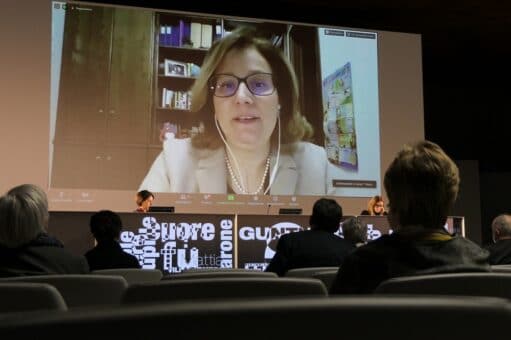
Mar 4, 2021 | Non categorizzato
A conference on the charismatic figure of Chiara Lubich, who knew how to look to the new millennium with all its epoch-making changes, proposing the ideal of universal fraternity. 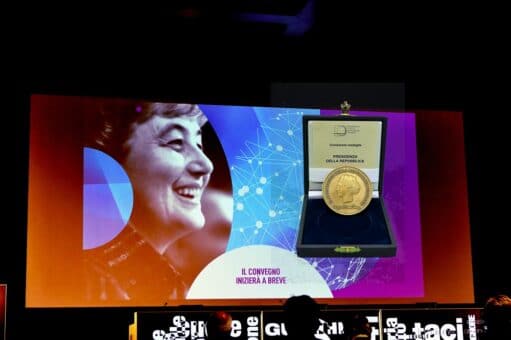 An international conference “Beyond the 20th Century. Chiara Lubich in dialogue with our time” marked the official closure of the wide-ranging series of events dedicated to the centenary of the birth of the Focolare Movement’s founder. As the title suggests, the conference studied the charismatic figure of Chiara Lubich from a dynamic perspective on one of the protagonists of the 20th Century who knew how to look to the new millennium with all its momentous changes by proposing the ideal of universal fraternity, never losing the conviction that “unity is a sign of the times”. The 2-day symposium on 18-19 February at the National Central Library of Rome, Italy, considered the figure of the Focolare Movement’s founder from different points of view. Jointly promoted by the Chiara Lubich Center at Rocca di Papa, Italy and the Central National Library of Rome, the event welcomed the collaboration of Sophia University Institute, the international New Humanity NGO and the Trentino Historic Museum Foundation. The Comune of Rome and the Vatican Dicastery for Promoting Integral Human Development offered their patronage. The President of the Italian Republic Sergio Mattarella conferred the prestigious Medaglia di Rappresentanza on the event, in recognition of its cultural value.
An international conference “Beyond the 20th Century. Chiara Lubich in dialogue with our time” marked the official closure of the wide-ranging series of events dedicated to the centenary of the birth of the Focolare Movement’s founder. As the title suggests, the conference studied the charismatic figure of Chiara Lubich from a dynamic perspective on one of the protagonists of the 20th Century who knew how to look to the new millennium with all its momentous changes by proposing the ideal of universal fraternity, never losing the conviction that “unity is a sign of the times”. The 2-day symposium on 18-19 February at the National Central Library of Rome, Italy, considered the figure of the Focolare Movement’s founder from different points of view. Jointly promoted by the Chiara Lubich Center at Rocca di Papa, Italy and the Central National Library of Rome, the event welcomed the collaboration of Sophia University Institute, the international New Humanity NGO and the Trentino Historic Museum Foundation. The Comune of Rome and the Vatican Dicastery for Promoting Integral Human Development offered their patronage. The President of the Italian Republic Sergio Mattarella conferred the prestigious Medaglia di Rappresentanza on the event, in recognition of its cultural value. 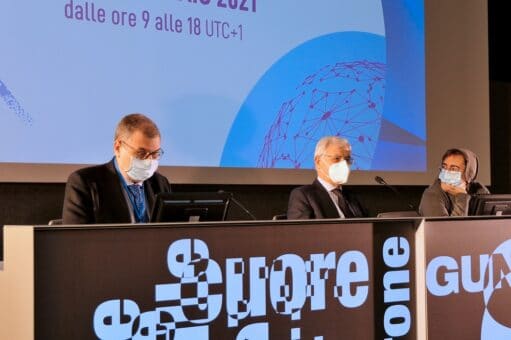 The program had four sections: historical, literary, socio-political and the fourth dedicated to other major 20th Century figures in order to analyze possible similarities and convergence with Chiara Lubich’s thought. Such a variety of perspectives, with contributions from academics of various disciplines, each with their own cultural approach, has permitted a deeper, more mature reflection and understanding of the historic experience itself and of Chiara Lubich’s thought, as well as a greater appreciation of her intellectual, spiritual and existential legacy. A comparison with other leading figures of the 20th century proved equally illuminating, covering contemporary protogonists such as Dietrich Bonhoeffer, Simone Weil, Mahatma Gandhi, Giorgio La Pira, Martin Luther King, Michail Gorbaciov. Chiara Lubich may not have met them directly, but she engaged with their writings and thought at a distance, with a shared passion for humanity and its future, revealing ideals and intuitions with evident features in common. The academic papers prepared by academics from around the world, were introduced by keynote speeches from Michel Angel Moratinos (High Representative for the United Nations Alliance of Civilizations) and historian Andrea Riccardi, founder of the Community of Sant’Egidio. Theologian and spiritual son of Chiara, Piero Coda brought the convention to a close.
The program had four sections: historical, literary, socio-political and the fourth dedicated to other major 20th Century figures in order to analyze possible similarities and convergence with Chiara Lubich’s thought. Such a variety of perspectives, with contributions from academics of various disciplines, each with their own cultural approach, has permitted a deeper, more mature reflection and understanding of the historic experience itself and of Chiara Lubich’s thought, as well as a greater appreciation of her intellectual, spiritual and existential legacy. A comparison with other leading figures of the 20th century proved equally illuminating, covering contemporary protogonists such as Dietrich Bonhoeffer, Simone Weil, Mahatma Gandhi, Giorgio La Pira, Martin Luther King, Michail Gorbaciov. Chiara Lubich may not have met them directly, but she engaged with their writings and thought at a distance, with a shared passion for humanity and its future, revealing ideals and intuitions with evident features in common. The academic papers prepared by academics from around the world, were introduced by keynote speeches from Michel Angel Moratinos (High Representative for the United Nations Alliance of Civilizations) and historian Andrea Riccardi, founder of the Community of Sant’Egidio. Theologian and spiritual son of Chiara, Piero Coda brought the convention to a close.  Donato Falmi, member of the event’s scientific committee, described their motivations. “The biography of Chiara Lubich in its temporal, spiritual and intellectual dimensions, is notably characterized by some themes which belong at the heart of contemporary life, beyond any ethnic, social or religious difference. Among the most relevant we identify are: a constant attention and openness to what is new, the capacity and disposition to dwell in situations of conflict, searching for what unites, an attitude of measuring events with the metre of the unity of opposites. Such profoundly human dimensions, which can be considered essential parts of the new era we are entering, open up possibilities of referring to others, of encounter and dialogue, which animate the whole project”. The convention, streamed live online in four languages and now available on Youtube, was also the stage for the launch of the first critical edition of Chiara Lubich’s book Meditazioni, edited by Maria Caterina Atzori. This book was first published in 1959, translated into 28 languages, with over a million copies printed. It indicates to contemporary readers the way of unity towards fulfilling the last testament of Jesus on earth “That all may be one”. As a fitting finale to the convention, on Monday 22 February the closing ceremony took place of a national educational event “One city is not enough. Chiara Lubich citizen of the world”, dedicated to the world of education, involving many secondary schools across Italy. (The winning schools).
Donato Falmi, member of the event’s scientific committee, described their motivations. “The biography of Chiara Lubich in its temporal, spiritual and intellectual dimensions, is notably characterized by some themes which belong at the heart of contemporary life, beyond any ethnic, social or religious difference. Among the most relevant we identify are: a constant attention and openness to what is new, the capacity and disposition to dwell in situations of conflict, searching for what unites, an attitude of measuring events with the metre of the unity of opposites. Such profoundly human dimensions, which can be considered essential parts of the new era we are entering, open up possibilities of referring to others, of encounter and dialogue, which animate the whole project”. The convention, streamed live online in four languages and now available on Youtube, was also the stage for the launch of the first critical edition of Chiara Lubich’s book Meditazioni, edited by Maria Caterina Atzori. This book was first published in 1959, translated into 28 languages, with over a million copies printed. It indicates to contemporary readers the way of unity towards fulfilling the last testament of Jesus on earth “That all may be one”. As a fitting finale to the convention, on Monday 22 February the closing ceremony took place of a national educational event “One city is not enough. Chiara Lubich citizen of the world”, dedicated to the world of education, involving many secondary schools across Italy. (The winning schools).
Maurizio Gentilini
Photos by Thomas Klann
Mar 3, 2021 | Non categorizzato
The Mariapolis Center in Paraguay during the pandemic, helping the needy in their neighbourhood The “Mother of Humanity” Mariapolis Centre is in Paraguay, just 20 kilometres from the capital city of Asunción, in a neighbourhood where close 200 families live in favourable economic conditions. Three focolarine live permanently at the Mariapolis Centre, along with three other married women. When the quarantine for Covid-19 began, “we didn’t want to be closed inside the Mariapolis Centre,” they say, “so we began to look at the needs of the families in our area.” In the neighbourhood, “pots of solidarity” were set up – that is, when everyone brings what they have and all together make a big pot to share with all the families. It was a good opportunity to make the big kitchen at the Mariapolis Centre available. “We wrote letters to get all of the Mariapolis Centre’s clients and vendors involved. A lot of help came immediately, so we cooked a good Bolognese sauce with pasta and rice, which was distributed to about 4,000 people in the neighbourhood. “We uncovered a lot of vulnerability: children who didn’t have a home, or had health problems, or houses without a bathroom or windows. So we started to take care of their needs.” At the same time, a WhatsApp group was created in the neighbourhood to share experiences of helping the poor and requests of all kinds. “In a short time, neighbours helped us by bringing milk, oil, clothing and cell phones, so that children could attend classes at school, as well as a refrigerator and construction materials, so we could build five bathrooms for families that did not have any.” The pandemic lingered, and with it came the problems of managing and paying expenses at the Mariapolis Centre. “Our strength was to have a well-organized kitchen, so we started offering a menu for takeaway food for sale. The main orders came from our neighbours, and this gave us the opportunity to get to know some of them better. “One day, for example, a neighbour asked us for help to confess: it had been 32 years since he had received the sacrament of reconciliation. Another neighbour, a professional cyclist, wanted to organize a race through the three main cities of Paraguay. With the proceeds we helped two ethnic groups of indigenous peoples bring electricity and drinking water to their homes.” Providence is never at a loss. “A member of the Focolare community donated a sum of money to cover four months of salaries. Then came an industrial fryer, lots of vegetables, fruit and many other things. What surprised us most was that even a car arrived so we could distribute the food. “But the gift, the greatest gift that the pandemic has given us focolarine has been the possibility to be close to our poor and to live our charism of unity to the full. We are here in this rift, where we can generate this communion between rich and poor and bring this culture of fraternity.”
Lorenzo Russo
Mar 2, 2021 | Non categorizzato
The President of the Focolare Movement entrusted the new general councillors with their areas of responsibility and urged them to form a governing body characterized by a deep spirit of fraternal service born of mutual evangelical love. On Thursday 11 February, one of the central governing bodies of the Movement- the so-called “Centre of the Movement” – was completed when Noreen Lockhart (Great Britain) and Flavio Roveré (Brazil) were elected by their respective sections as responsible for the women and men focolarini. This governing body consists of the president and co-president, 22 general councillors and the two people responsible for the men’s and women’s sections. The councillors come from 17 countries and 4 continents, are are aged between 52 and 70 years: they represent the multiculturalism that distinguishes the Focolare. Many of them have lived not only in their country of origin but also in other geographical contexts: this is important in order to understand the characteristics, needs and challenges of the countries in which those who recognize themselves in the Focolare’s message of unity live. The composition, the “Centre of the Movement” should, in a certain way, be representative of the entire Movement and manifest its unity. According to the Focolare Movement’s General Statutes, the task of this body is “to ensure and increase unity throughout the Movement, directing it towards the fulfilment of its aims and taking care of coordination among its various parts.” In her second session today, Tuesday 2 March, President Margaret Karram gave the elected councillors the new areas of responsibility to follow in the life of the Movement both in its different aspects and in its different geographical areas. On this occasion she reiterated her desire that the “Centre of the Movement”, like all its governing bodies, be characterized by a profound spirit of fraternal service born of mutual evangelical love.
Communication Office
Councillors Cuneo, Chiara (Italy) Spirituality and life of prayer Escandell, Silvia (Argentina) Central delegate Gomez, Margarita (Spain) Nature and physical life Kempt, Donna Lynn (USA) Europe Kobayashi, Renata (Japan) Unity and means of communication Koller, Friederike (Germany) Witness and diffusion, Africa and Middle East Lockhart, Noreen (United Kingdom) Women focolarine Moussallem, Rita (Lebanon) Asia and Oceania Ngabo, Bernadette (RDC Congo) Americas Sanze, Geneviève (Central African Rep.) Communion of goods, economy and work Simon, Renata (Germany) Wisdom and study Zanolini, Clara (Italy) Harmony and environment Consiglieri Asprer, Ray (Philippines) Central delegate Bartol, Angel (Spain) Americas Battiston, Ruperto (Italy) Communion of goods, economy and work Brüschke, Klaus (Brazil) Witness and diffusion, Africa and Middle East Canzani, Francisco (Uruguay) Wisdom and study Dijkema, Enno (Netherlands) Harmony and environment Kenfack, Etienne (Cameroon) Nature and physical life Roveré, Flavio (Brazil) Men focolarine Salimbeni, Antonio (Italy) Asia and Oceania Schwind, Joachim (Germany) Unity and means of communication St-Hilaire, Marc (Canada) Spirituality and life of prayer Valtr, Vit (Czech Republic) Europe
Mar 1, 2021 | Non categorizzato
Seeking love and fleeing from pain: this is an almost natural mechanism of human existence. With the message of the cross, however, Christianity teaches that true and deep love passes through pain. Whoever understands the cross well – says Chiara Lubich in the following text – finds in it a key to the fullness of life. “Let them take up their cross . . .” (Mt 16:24). So strange and unique are these words. Like all the words said by Jesus, they have something in them of a light that this world does not know. They are so bright that the dull eyes of human beings, including those of apathetic Christians, are dazzled and therefore made blind. … And perhaps the whole mistake lies here: in the world, love is not understood. Love is the finest of words, but it is also the most deformed and debased. … Perhaps maternal love can give us an inkling of it. For the love of a mother is not only hugs and kisses; it is above all sacrifice. Thus it is with Jesus: love impelled him to the cross, considered foolishness by many. But only this foolishness has saved humanity and has formed the saints. Saints, in fact, are people who are able to understand the cross. They are men and women who, following Jesus, the God-Man, have taken up their daily cross as the most precious thing on earth. At times they have brandished it like a weapon, as soldiers of God. They have loved it all their lives, and they have known and experienced that the cross is the key, the only key to a treasure, the treasure. The cross gradually opens souls to union with God. Then, through human beings, God once more reappears on the scene of this earth. He repeats—although in a way that is infinitely lesser, yet similar — the actions that he himself once performed when, as one human being among others, he blessed those who cursed him, forgave those who insulted him, saved, healed, preached the words of heaven, fed the hungry, founded a new society based on the law of love, and revealed the power of the One who sent him. In short, the cross is the necessary instrument by which the divine penetrates the human, and a human being participates more fully in the life of God, and is raised up from the kingdom of this world to the kingdom of heaven. But we must “take up our cross…,” wake up in the morning expecting it, and knowing that only by means of it can we receive those gifts which the world does not know: that peace, that joy, that knowledge of the things of heaven, unknown to most. … The cross, the badge of the Christian, is unwanted by the world because it believes that by fleeing it, suffering can be escaped. The world does not know that the cross opens wide the soul of the person who has understood it to the kingdom of Light and of Love: that Love which the world seeks so much, but does not have.
Chiara Lubich
Chiara Lubich, Essential Writings, New city Press, Hyde Park, New York, 2007, pp. 189.
Feb 27, 2021 | Non categorizzato
“We have learned to love each other without asking for anything in return, just as God loves us.” “Little by little, we have fallen in love with each other’s souls. We find ourselves in a fullness of love that we have never experienced before, not even when we were engaged, and this is possible because now we love each other in a totally free way, without asking anything in return, as God loves us.” Nacho and Fili are from Mexico, they have been married for 30 years and have two children. They say that their love only really began after they discovered that God is Love and that he loved all human beings to the point of giving his life for them. In comprehending this great gift, they understood that they could overcome their respective limitations and heal the wounds that had torn their relationship apart. It was a discovery that gave meaning to the journey of each of their lives and made them capable of loving and freely giving to one another. Their story, up to a certain point, is similar to that of many couples. Two people feel they are in love and decide to get married: in each one there is an inner void that undermines the foundations of any project. They hope that by sharing the wounds each one feels within they will be able to fill up that emptiness but this is the premise of an abyss that leads to further disintegration. “My father had another wife and other children,” says Fili, “and that made me suffer. I wanted to get married and live a more stable family life. When I was a child, I also suffered because of my father’s absence from home and my mother’s lack of attention towards me.” Nacho continues. “Fili and I combined the loneliness that we experienced in life but we were wanting to fill up the emptiness there was within us without having known real love. We quickly realised this love between us was missing.” Problems soon began. On account of Fili’s jealousy, Nacho was forced to change jobs often and the resentment this caused created tension. The children also suffered: “We loved them a lot but we didn’t know how to teach them to love, nor how to make them love God.” Fifteen years into their marriage, the two separated: Nacho was disappointed and felt the relationship was ended; Fili could not forgive her husband. “It seemed as if nothing united us any more,” they remember, “that there was no more love.” Then something happened that changed the direction of their lives. One evening, while watching TV, Nacho was struck by a woman, Chiara Lubich, founder of the Focolare Movement, who spoke of fraternal love. He saw images of the Movement’s little town in Mexico, called El Diamante. One Sunday they went to Mass there and were invited to the Mariapolis, a meeting organised by the Focolare Movement. They do not imagine that the invitation to follow the Gospel could be revolutionary for them and bring about such a radical change: “I tell you, forgive not seven times, but seventy-seven times. ‘ (Matt. 18:21-22) is the phrase they felt called to live out in their daily lives. “They told us about Jesus forsaken on the cross,” says Fili, “how he forgave and gave his life for us. I realised that in comparison with what he had done, my sorrows were small. God had already forgiven my husband, and his will for me was that I should forgive too. I did it and experienced that it is possible to be born anew.” “We are imperfect and different,” Nacho concludes, “but I have learned to trust the God who makes everything possible.”
Claudia Di Lorenzi
Feb 23, 2021 | Non categorizzato
A social centre in Bolivia offers support to 220 children and families in need. Silvio’s story: today he works for the same institution that saved him and cared for him when he was a child. Silvio lives in Cochabamba; he has 10 siblings. His father, who was a miner, died when Silvio was 10 years old. Since then, his mother brought up a family of 11 children all by herself. They lived in a 4 x 5 metre room in a neighbourhood where drugs and robbery were the main activities for children. Now, Silvio works for the Unisol Foundation, the same charitable institution that one day saved him and his brothers from the life of sreet children. This foundation is also supported by AFN Onlus (an association set up by the Focolare New Families Movement) through specific Distance Support programmes, that offer services to help with the education, nutrition and good health of children, while also seeing to their families and communities to ensure as much as possible that the children’s development takes place in a healthy environment. The implementation of these programmes is coordinated at a distance with competent local staff. But what does the foundation actually do? We put this question to Silvio, whose life story is entwined with that of Unisol, a foundation which today supports 220 children and families in need. Can you tell us something about your family and your childhood? “We are a very large family, 11 children in all. At first, we lived in Quillacollo, one of the most dangerous areas in Cochabamba (one of the most populated cities in Bolivia). My father used to work in a mine. He died of tumour when I was 10 years old, and from then on, my mother had to shoulder the full responsibility of all the family. It was the first time she had to look for a job, and she was employed as a cleaner in a school, in another town. To make life a bit easier for her, she was given the chance to live on the school premises, in the porter’s lodge: a small room of 4×5 metres, which became the living quarters for 8 of us. Although this new neighbourhood is better than our previous one, yet it is still a very dangerous one. Very often, families cannot give the care needed by their children because they work all day, and children easily get into drugs; they deal in drugs or steal to pay for their doses. Many of my schoolmates ended up in gangs, but I still tried to keep some contact with them, even with the most dangerous ones, out of fear that they might take revenge on me or my family! Some of my friends were hooked on drugs. They offered drugs to me too, but I have always refused their offer, mainly out of respect for my mother, who sacrificed all her life for us children, and I always admired her a lot. But one day something changed….. “Yes. One day some members of the Focolare Movement came to our school and they offered help to my mother. They gave us snacks and sweets, they played with us, they listened to us, they gave us what we needed. And we felt very happy. As time went by, numbers increased and this led to the idea of finding a place, rather than the street, where we could play, study and be together. Thus, the Rincón de Luz (Corner of Light) Centre in Cochabamba came into being and later, the Clara Luz (Clear Light) Centre in Santa Cruz was also set up. This changed our lives; for example, it was impossible to find a job for one of my sisters who is deaf and dumb, and we could not afford to make her study. But thanks to the help we received from the Foundation, she was able to get some training, and now she too has a profession”. In reality, what does the Unisol Foundation do? “It helps the most needy, especially families. It provides them with food, medicine and school things. It also offers educational support through after-school activities for children;. It organises recreational activities, lunches, snacks and workshops to teach practical and manual work; it promotes recycling and environmental awareness, personal training, sharing experiences,… After having experienced the care offered by the Foundation, now, you are taking care of children and families in need. What motivates you to keep on doing this? “First of all, I need to explain a bit more about our situation. In October 2019 there was the presidential election in Bolivia, and immediately afterwards a political crisis followed. This led to a substantial decrease in funds distributed to public organizations. Then, the country had to face the pandemic and the situation became worse. As many doctors and health assistants stopped working because they were afraid of the contagious virus, those who were ready to work in hospitals were offered high wages. Even I was offered a very good job and I was tempted to accept it: who wouldn’t like to have a few extra comforts? But then I realised that money would not make me happy , but living for others would. I felt I had to continue my work at Rincón de Luz…”. How has helping families changed with the pandemic? And is there anything in particular you would like to share with those who are getting to know about the Unisol Foundation? “Families are being very hardly hit by the pandemic. Many used to sell goods or food items on the streets; now they cannot do it anymore and so they stopped earning money. Many are losing hope of recovery from this situation. In addition to this, there have been quite a number of divorce cases, and the effects of this on the children we care for are many. At the moment, even my mum is taking care of a child, the son of a couple who have just separated and have practically nothing left. This is our work; we are there to answer for all the needs of these families. Unfortunately, we don’t have enough resources to cater for a larger number of people, even though this is what we would like to do. We also continue to help the families who previously were under our care. Besides other things, we also try to offer them a place where they can relax a bit, because the situation is really difficult. But there are many more people who need support, so I invite all those who are getting to know about the Unisol Foundation to offer help, starting with people who are near and maybe we do not know them, but they are the ones who need our time, our attention and our love.
Edited by Laura Salerno
Laura Salerno’s interview with Silvio (choose English subtitles): https://youtu.be/UVTztN2UoUE Contact details: www.fundacionunisol.org Facebook: @Fundaciónunisol https://www.afnonlus.org/ Facebook: @afnonlus Instagram: @afn.onlus
Feb 22, 2021 | Non categorizzato
The most radical choice in Chiara Lubich’s life was to love Jesus above all in his greatest pain: his abandonment on the cross. But loving “Jesus Forsaken” means, therefore, above all loving those neighbours whom we feel most “distant” from us. “Anyone who gets angry with his brother is subjected to judgment” 1. […] Once again, love for our neighbour is underlined. And it’s useful, it’s necessary, it’s good for us to keep this in mind. The general aim of the Movement is the perfection of charity. We are called to love each brother and sister with a love than is more and more felt; a love that is ever more profound and perfected; a love that is ever more refined. At times, we feel that it is difficult to bend our heart to exercise a more refined love than the one we already have for our brother or sister: our heart is still partly made of stone; our love is rough, superficial, too hasty. Why? Because our hearts are still occupied by ourselves, by a certain consideration of ourselves. We are, even if we don’t realize it, selfish and proud. And this is demonstrated by the fact that when we undergo some severe spiritual test (which, like an earthquake, seems to eradicate everything at the root, thus having the effect of detaching us from ourselves, from our possessions and humiliating us, lowering our pride), we are aware of a more understanding love; a deeper, easier, more spontaneous love towards our brothers and sisters. That’s how it is. It therefore follows that poverty and humility are the basis of charity. Poverty and humility. How can we obtain them, how can we earn them without waiting for spiritual storms? […] It is necessary to “live the other” […] and this implies not taking account of oneself; having total poverty and total humility. […] Let us encounter our neighbours in a perfect attitude of welcoming their life in us. […] And since we are talking about neighbours, let’s ask ourselves: Whom should we love first? Whom should we love more? Whom should we have a preference for? We have chosen Jesus Forsaken. We must prefer those who, on account of their condition and because of the situations in which they find themselves, in some way remind us of his face: those who, although being Catholic, live separated from the Church; and then all those who in various ways are more or less distant from the truth that is Christ, including non-believers. Above all, we must go towards these. Do we want to keep in touch with those with whom we have shared our Ideal? Perhaps through letters, visits, or telephone calls. Let’s start with the people, who in a certain way, are furthest away from us. Let us revive our love for our brothers and sisters by making ourselves so one with them that we live – so to speak – their life. And let’s start with those who appear to us furthest from our evangelical way of thinking and living […] Jesus Forsaken awaits us there. Our place is there.
Chiara Lubich
(in a telephone conference, Rocca di Papa, February 12, 1987) 1) Mt 5,22
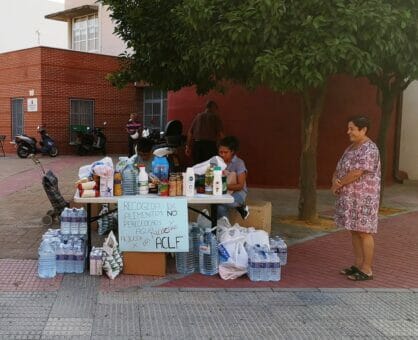
Feb 19, 2021 | Non categorizzato
The commitment of a small community in the Murcia region of Spain has led to lots of activities being set up to create space for dialogue and solidarity, such as meetings between citizens and politicians, cultural events and activities responding to social and humanitarian emergencies. 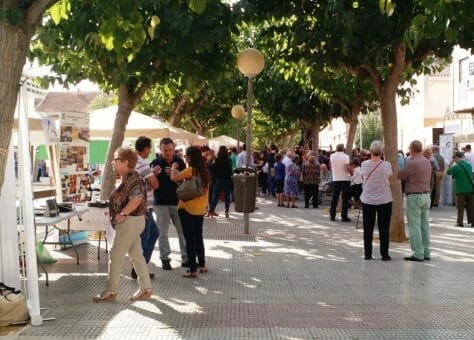 Aljucer is a small town in the Murcia region of southern Spain. Twelve years ago, members of the local Focolare community asked themselves what they could do to make their commitment to living fraternity a reality which impacts on people in the local area which is located in fertile land close to the Mediterranean Sea, but which also has its fair share of large and small emergencies. The first step was to find a way to create opportunities for participating in the life of the town which were more open and inclusive. So, in collaboration with other groups, they set up a cultural association called ‘ACLF Aljucer’. “Our first experience as an association,” they said, “was to bring together various mayors who had been in office in the city during the Spanish democratic period. Inviting them was not easy, but in the end they all agreed to participate. They had an opportunity to introduce themselves, recall the time when they held office and, in some cases, reconcile with one another. In the end, they thanked us and encouraged us to continue in this vein.”
Aljucer is a small town in the Murcia region of southern Spain. Twelve years ago, members of the local Focolare community asked themselves what they could do to make their commitment to living fraternity a reality which impacts on people in the local area which is located in fertile land close to the Mediterranean Sea, but which also has its fair share of large and small emergencies. The first step was to find a way to create opportunities for participating in the life of the town which were more open and inclusive. So, in collaboration with other groups, they set up a cultural association called ‘ACLF Aljucer’. “Our first experience as an association,” they said, “was to bring together various mayors who had been in office in the city during the Spanish democratic period. Inviting them was not easy, but in the end they all agreed to participate. They had an opportunity to introduce themselves, recall the time when they held office and, in some cases, reconcile with one another. In the end, they thanked us and encouraged us to continue in this vein.” 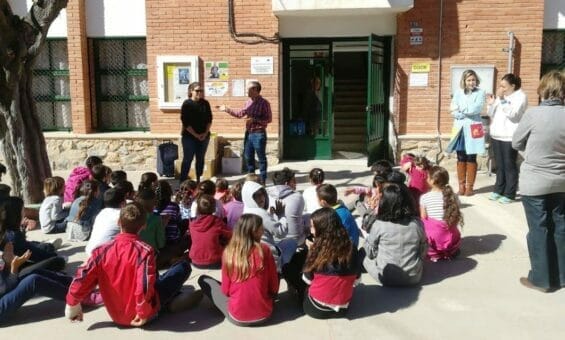 This experience led to the idea of holding a meeting every year to bring politicians and citizens closer together which is how “In Our Hands” and “The Speaker” were born. The first of these meetings which have now been running for twelve years,” they explained, “took place before the elections and offered a safe space where dialogue between citizens and candidates was encouraged. In the second event, a topical issue was chosen, and politicians and citizens were given the floor. Speeches and proposals are collected, published on the Association’s website and offered as contributions to the City Council. Some of the topics proposed have been studied in depth and, from that experience, the idea of a Cultural Centre under the authority of the Municipality arose which is now becoming a reality. The Association also puts on cultural activities, such as concerts, book presentations and exhibitions. And there is also “Aljucereños”, an event where personalities from the world of culture, music, art, literature, politics, economics and medicine talk about their life experiences and the motivation behind their choices. They also hold monthly meetings with other assocations and organise an annual Associations’ Fair.
This experience led to the idea of holding a meeting every year to bring politicians and citizens closer together which is how “In Our Hands” and “The Speaker” were born. The first of these meetings which have now been running for twelve years,” they explained, “took place before the elections and offered a safe space where dialogue between citizens and candidates was encouraged. In the second event, a topical issue was chosen, and politicians and citizens were given the floor. Speeches and proposals are collected, published on the Association’s website and offered as contributions to the City Council. Some of the topics proposed have been studied in depth and, from that experience, the idea of a Cultural Centre under the authority of the Municipality arose which is now becoming a reality. The Association also puts on cultural activities, such as concerts, book presentations and exhibitions. And there is also “Aljucereños”, an event where personalities from the world of culture, music, art, literature, politics, economics and medicine talk about their life experiences and the motivation behind their choices. They also hold monthly meetings with other assocations and organise an annual Associations’ Fair.  But it is also important to listen and respond to the sufferings and wounds of the local area to build fraternity. “The first step we took towards solidarity,” they continued, “was to organise a dinner in aid of the ‘Fraternity with Africa’ project which provides scholarships for young Africans who have committed to working in their home country for at least five years. This very soon became our main activity, the one for which we became known by so many. Shopkeepers and associations help organise the dinners which bring together around 200 people. Participants are updated on the project’s development at every meeting”. The Association also collaborates with initiatives promoted by other organisations that support humanitarian emergencies (Philippines, Madagascar, Croatia) and has committed to helping refugees from the war in Syria. The latest activity was a fundraiser for Lebanon, after the explosions in Beirut in August 2020. Even when there were emergencies closer to home they didn’t back down. “Last year,” they explained, “we made it our priority to provide water and food to the people affected by flooding in the area. We also organised volunteer activities and collected school supplies for a school in our area where a high number of pupils are at risk of exclusion. In the last year, we have supported three families affected by the pandemic by providing food, medicine and financial assistance. We disseminate all these activities through the Association’s website and Facebook page which help us to promote a culture of solidarity on a large scale”.
But it is also important to listen and respond to the sufferings and wounds of the local area to build fraternity. “The first step we took towards solidarity,” they continued, “was to organise a dinner in aid of the ‘Fraternity with Africa’ project which provides scholarships for young Africans who have committed to working in their home country for at least five years. This very soon became our main activity, the one for which we became known by so many. Shopkeepers and associations help organise the dinners which bring together around 200 people. Participants are updated on the project’s development at every meeting”. The Association also collaborates with initiatives promoted by other organisations that support humanitarian emergencies (Philippines, Madagascar, Croatia) and has committed to helping refugees from the war in Syria. The latest activity was a fundraiser for Lebanon, after the explosions in Beirut in August 2020. Even when there were emergencies closer to home they didn’t back down. “Last year,” they explained, “we made it our priority to provide water and food to the people affected by flooding in the area. We also organised volunteer activities and collected school supplies for a school in our area where a high number of pupils are at risk of exclusion. In the last year, we have supported three families affected by the pandemic by providing food, medicine and financial assistance. We disseminate all these activities through the Association’s website and Facebook page which help us to promote a culture of solidarity on a large scale”.
Anna Lisa Innocenti
Feb 15, 2021 | Non categorizzato
If the spirituality of the Focolare, which is centered on love for one’s brother or sister, is an expression of the Gospel, then also “perfection in virtues”, as it is referred to in the Christian tradition, must be achievable in relationships with others. This is the conviction that Chiara Lubich explains in the following text. Many of us are familiar with the Imitation of Christ, a book of prayer and meditation that is rich in spirituality. In order to transform our life into a Holy Journey, and reach the goal that the book puts before us, it says that we need some attributes that are very compelling: complete contempt for the world, an ardent desire to progress in virtue, love for sacrifice, and the fervor of penance, self-denial, and knowing how to bear every adversity…. They are attributes that are necessary for all of us to possess. However, we must ask ourselves: how can we acquire them in accordance with our own spirituality? The answer is clear and certain: we have not been called by God to accomplish all this through a monastic style of life separated from the world. We are called to remain in the midst of the world and to go to God through our neighbor, which means through love for our neighbor and through reciprocal love. It is through committing ourselves to undertake this unique and evangelical path that we will discover, as if by enchantment, that we have acquired these virtues in our soul. We need to have contempt for the world. Then, there is no better contempt for something than complete disregard, forgetfulness and indifference toward its existence. If we are fully projected toward thinking of the others, toward loving the others, we no longer have concern for the world, we forget about it; therefore, we have contempt for it, even though this does not free us from doing our part in pushing aside its suggestions when they assail us. We must progress in virtue. But we can do this if we have love. Isn’t it written: “I will run the way of your commands when you give me a docile heart [a heart full of love]” (Psalm 119:32)? If in loving our neighbor we run the path of fulfilling God’s commands, it means that we are making progress. We need to love sacrifice. To love the others precisely means to sacrifice oneself in order to be dedicated to the service of others. Christian love, even though it is a source of great joy, is synonymous with sacrifice. We need the fervor of penance. It is through a life of love that we will find the greatest and principal penance to perform. We need self-denial. Love for our neighbors always implies self-denial. Finally, we need to know how to bear all adversity. Are not many sufferings in the world caused by living alongside others? We must know how to bear everyone, and to love him or her out of love for Jesus Forsaken. By doing this we will overcome many obstacles in life. Yes, in loving our neighbor we find an excellent possibility to transform our life into a “holy journey”. […]
Chiara Lubich
(From a telephone conference call, Rocca di Papa, 27 November 1986)
Feb 12, 2021 | Non categorizzato
This is the title of the conference to be held on 18-19 February and promoted by the Chiara Lubich Centre and the Central National Library in Rome. Consonances and common points between the spirituality of unity and lines of thought of great figures of our times. Can we imagine what dialogue between Chiara Lubich, Dietrich Bonhoeffer, Simone Weil, Mahatma Gandhi, Giorgio La Pira, Martin Luther King or even Mikhail Gorbachev would be like? When the vision of a personality happens to be in harmony with that of other ‘great minds’ of his or her time, or of other times, such a convergence often strengthens and enriches a movement of common ideas, that can reach large patches of humanity and set a course towards a durable change. To put Chiara Lubich’s idea of unity in dialogue with different personalities who have made history, is the aim of the conference “Beyond the 20th century. Chiara Lubich in dialogue with our times”. It will be held on 18-19 February 2021, and it is being promoted by the Chiara Lubich Centre and the National Central Library in Rome. This event may be followed online on Città Nuova’s YouTube channel in Italian, English, Spanish and Portuguese. THURSDAY 18/02 ITALIANO https://youtu.be/hePSudSFdbo PORTUGUÊS https://youtu.be/91uF6G4uJ80 ENGLISH https://youtu.be/_vKWn0NNP_Q ESPAÑOL https://youtu.be/Awo4Z3sbQU0 FRIDAY 19/02 ITALIANO https://youtu.be/R1NtYaCUifA PORTUGUÊS https://youtu.be/pQKtuCs1loQ ENGLISH https://youtu.be/s8H4u-LHC70 ESPAÑOL https://youtu.be/TNFO84-RZBM During this conference, Chiara Lubich’s thought and her experience in the historical, political, economic and literary fields will be dealt with, thanks to the contribution of academics and scholars from different disciplines. Amongst these, there will be Michel Angel Moratinos, Andrea Riccardi, Piero Coda, Alessandra Smerilli, Vincenzo Buonomo, Pasquale Ferrara, Maurizio Gentilini, Giulia Paola De Nicola, Adriano Roccucci, Cristiana Freni, Lucia Tancredi, Aldo Civico, together with others from other countries, such as Andras Fejérdy from Hungary and Vinu Aram from India, just to name a few. There will be four sessions during this conference that will deal with the historical aspect, the literary aspect, the socio-political aspect, while the last one will be dedicated to some twentieth century personalities. Chiara Lubich lived through most of the twentieth century and the first years of the new millennium. She looked at this change of epoch from the perspective of universal brotherhood, convinced – as she affirmed many times – that ‘unity is a sign of the times’. The consonances that the conference aims to highlight, in fact, go far beyond the analysis of Chiara Lubich’s thought, because they place it in dialogue and in comparison with the thought of great figures who, through different ways of life and cultures, have however pointed their gaze in the same direction. Besides the Focolare Movement, the Sophia University Institute, Città Nuova, New Humanity and the Trentino History Museum Foundation are also giving their share towards this conference.
Stefania Tanesini
Feb 12, 2021 | Non categorizzato
29 March 1922 – 1 November 2020. A Jesuit priest and long-standing Focolare member, he was a great educator and spiritual director. Just before dawn on the feastday of All Saints, in the infirmary of the Jesuit Fathers in Rome, Fr Paolo Bachelet left for his Father’s House. He had celebrated his 98th birthday on 29 March 2020. Fr Paolo entered the Society of Jesus on 7 December 1941. He was ordained priest on 7 July 1951 and completed his formation with solemn final vows on 3 February 1958. He got to know the Focolare Movement and the spirituality of unity in the 1950s while studying theology at the Gregorian University. Among his fellow students was Pasquale Foresi, co-founder of the Movement. Immediately a spiritual bond formed between them which never waivered. Focolare founder, Chiara Lubich “entrusted” a phrase of the Gospel for him to live in a particular way in his daily life, so that it could become his own Word of Life: “He must increase but I must decrease” (Jn 3:30). He welcomed the spirituality of the Focolare and became part of the group of religious men belonging to the Movement. For many years he worked in the regional seminary at Anagni, Italy, then in the University Chapel of La Sapienza in Rome. He was a great eduator and spiritual director. Many seminarians continued to turn to him for spiritual guidance even after they left Anagni, including those who later became bishops. In the University Chapel of La Sapienza, where he lived from 1987 to 2003, he was much loved and sought after as a spiritual accompanier by both students and academics alike. It was a constant source of edifying spiritual enrichment to live a strong spiritual relationship with him. He had a great capacity to listen. He really knew how to set himself aside in order to fully welcome the other person. When he communicated what was in his soul with the small group of other religious men who shared the life of the spirituality of unity with him, he often commented that in many conversations he would find himself faced with issues for which he had no pre-prepared answer. This never concerned him, because he would always experience how the person who was confiding a particular problem, having been listened to discreetly and attentively by Fr Paolo, would find the light and answer within themselves. He communicated this as a fruit of the spiritual presence of Jesus in that moment between him and the person speaking, according to the Gospel promise Where two or three are gathered in my name, I am there among them» (Mt 18:15-20). He was well primed in Moral Theology and Canon Law. He had a special dedication to families. In the 1990s, together with a married Focolarino and other Focolare members, he was involved in the formation of the Separated Christian Families Association. He supported the association’s branch in Rome for many years until 2017, when he was transferred to the infirmary in Via dei Penitenzieri, Rome. He followed the preparations and progress of the Synod of Bishops on the Family with close interest. And in fact some of his observations which reached the Synod General Secretary made their way into the final document, Amoris Laetitia. We recall Fr Paolo as a spiritual son of Chiara Lubich and as a true brother sharing the Spirituality of Unity. He is surely continuing to follow us from heaven.
Fr. Armando Ceccarelli S. J.
Feb 10, 2021 | Non categorizzato
From Focolare communities in Croatia, Macedonia and Serbia, where they’ve been experiencing the joy of giving freely to help those in difficulty “Our communion of goods began by observing the early Christians. We saw that there they had a communion of goods, and as a result there was no one who was poor among them… “So you could say that the formula is this: if the whole world were to implement the communion of goods, then social problems, the poor, the hungry, those without a legacy, etc., would no longer exist.” This was how Focolare founder Chiara Lubich, when she launched the Economy of Communion project in 1991, explained the origins of the “communion of goods” in the movement, both material and spiritual. In 1943 in Trento, the war had destroyed the city, and many had lost their homes, jobs and families. Faced with such despair—and in light of the words of the Gospel they meditated on in the shelters—Chiara and her early friends decided to take care of those most in need. “Our goal was to implement the communion of goods as much as possible in order to solve the social problems of Trento. I thought, ‘There are two or three places where the poor people are… Let’s go there, let’s bring what we have, let’s share it with them.’ Simple logic, really: we have more, they have less. We will raise their standard of living so that we will all reach a certain equality.” Eighty years later, the communion of goods is still a vibrant reality in the movement. Each person gives freely according to his or her possibilities, often expressing gratitude for what they’ve received. Experiences are multiplying all over the world. “I went to buy 10kg of wheat for my chickens,” says one person from Croatia. “The man who sold it to me did not want money. I donated what I had saved for the communion of goods, which is extraordinary in this pandemic.” Of course, it’s not always possible to donate goods and money. Still, the commitment reinforces the value of the gesture. “I recently sold some wine to a neighbour. He gave me more money than he had to, and he didn’t want any change. I gave it for the communion of goods, but it wasn’t easy; I had to overcome my human way of thinking.” The experience of receiving after giving often happens. It is the evangelical “Give and it will be given to you” (Lk 6:38) that Chiara and her early friends tangibly experienced. “We helped some families who had lost their jobs because of the crisis caused by the pandemic, donating food, medicine and school supplies,” they write from Macedonia. “It was little help, but one of them told us that it was enough to eat for two weeks. Shortly after, another family made a donation that covered their expenses. Everything was circulating.” The joy of giving and the joy of receiving happens frequently. In Serbia, the communion of goods reached a family with children where father and mother are sick and unemployed. They live off the produce from their garden, and to pay the bills, Toni helps out in the parish. “When we went to bring him money, he was borrowing to buy wood. We explained to the family where the help was coming from, and they were moved because they felt that God, through us, ‘had looked their way.’” The communion of goods, after all, is nothing more than an instrument of divine providence.
Claudia Di Lorenzi
Feb 8, 2021 | Non categorizzato
The General Statutes of the Focolare Movement, as well as the Regulations of each of its branches, contain a “premise to every other rule” a “norm of norms”: the commitment of whoever is part of the Movement to live mutual charity according to the Commandment of Jesus. In the following text, Chiara Lubich emphasizes that this commitment must be continually renewed. [In the letter to the Romans the apostle Paul] says: “Let us cast off deeds of darkness and put on the armor of light” (Rom 13:12).The “deeds of darkness” are the consequences of vices and sin. The “armor of light” is the virtues and the practice of living the Word of God in our lives. Now, we know that the New Commandment of Jesus is the synthesis of all His commands, of all His Words. Therefore, we will put on the “armor of light” by refocusing our lives on this commandment. The result—we know—is that the Risen Lord will be resplendent in the midst of our community. […] So then, the “armor of light.” The New Commandment practiced with new commitment. […] This is an invitation that I extend to all of you. And so that we can begin right away, let’s take a moment to look at our reciprocal love: let’s consider the measure of love (keeping in mind that it must be the same measure with which Jesus loves us: therefore to be ready to give our lives); let’s look at where our generosity is lacking, at our limitations in loving, so that we can overcome them; let’s see if our reciprocal love may rest too heavily on a human plane, and need therefore to be raised to a supernatural level…. If we do so, if we improve our reciprocal love in this way, Jesus, the Saint, will be among us and will make this present year the holiest of our lives.[…]
Chiara Lubich
(From a telephone conference call, Rocca di Papa, 13 November, 1986)
Feb 6, 2021 | Non categorizzato
On 8 February, a prayer marathon for an economy which cares for and values the human person and nature, which includes and does not exploit the most vulnerable. The International Day of Prayer and Awareness against Human Trafficking is observed on 8 February 2021, the feast day of St Josephine Bakhita. It invites us to reflect deeply on this issue and to make the connection between our contemporary world economy and human trafficking. The Focolare Movement is closely associated with a worldwide network of concerned associations and partners, including the Dicastery for Consecrated Life, the Pontifical Council for Justice and Peace, the Pontifical Council for the Pastoral Care of Migrants and Itinerant Peoples, the Pontifical Academy of Sciences, Caritas International, and many more. It’s a joint call for an economy not underpinned by illegal trafficking or exploitation, but which promotes the life and dignity of every person and dignified work for all. Human trafficking exists because it generates huge sums of ‘easy-money’ for the traffickers. But actually, we all profit from trafficiking, in some sense, when we obtain too-low cost goods or services. We must change direction and say no to everything that destroys life. The International Day of Prayer and Awareness against Human Trafficking 2021 turns the spotlight on one of the main causes of human trafficking: our current dominant economic model, with limits and contradictions which have been accentuated by the Covid-19 pandemic. Human trafficking is an integral part of this economy. The victims of trafficking like “goods” are trapped within the chains of a globalization governed by financial speculation and low cost competition. What’s needed is a structural and global vision of trafficking to demolish all the perverse mechanisms which feed the demand for persons to be exploited. Because the whole economy is diseased to its very core. Oscar Wilde is credited with defining a cynic as someone who ‘knows the price of everything and the value of nothing’. Well, this our economy seems to be dominated by cynicism. Referring to goods, services and people, the market not only determines the price, but, even more drammatically, it’s the price that determines the value. A business falls victim to this logic by being increasingly valued by the financial markets according to the share price and not from the added value of its human capital. So trafficking is just the tip of the iceberg. It’s the magnified expression of a malaise caused by prevalent neoliberalism based on a (false) idea of economic liberty in which every ethical, social and political consideration is deemed superfluous and an obstacle. On the other hand, an economy without human trafficking is an economy which cares for and values the human person and nature, which includes and does not exploit the most vulnerable. How can we participate in the World Day of Prayer? On 8 February you can follow the prayer marathon on the special Youtube channel over seven hours, in five languages, highlighting stories of different ways of combatting human trafficking around the world. More information from: www.preghieracontrotratta.org
Lorenzo Russo
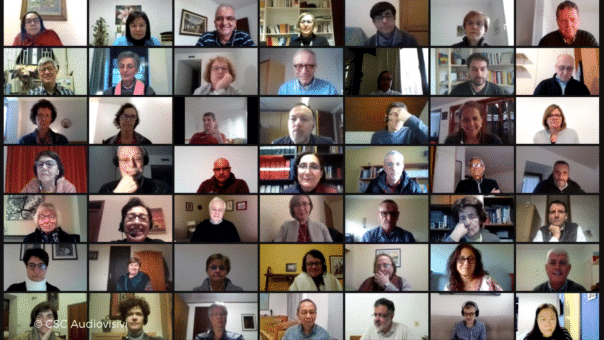
Feb 5, 2021 | Non categorizzato
General Assembly – Diary12, February 5, 2021 A very intensive day of work has come to an end for the General Assembly participants.  Between yesterday and today they analysed and voted on a number of motions about the future life of the Movement. A first draft of the final document has also been written. This summarises the orientations and the plan of action on the topics discussed in the various working groups. It needs to be said that time constraint and the technical conditions imposed by the telematic mode posed a challenge for the Assembly’s work. Nonetheless, every effort has been made to enable everyone to contribute, to experience unity in diversity, and to plan together a final document to be handed over to the new Government. Roughly, it has been calculated that 13 to 15 hours of work were put into each topic and a total of 3,500 working hours were invested in the first draft alone. All this work has been achieved through the help of several specialised platforms and three professional facilitators. An extraordinary appointment for tomorrow morning: Pope Francis will receive the General Assembly in a private audience at the Paul VI Hall. Some participants will actually participate in person, while most of them will follow via streaming. The outgoing president, Maria Voce, will introduce the newly elected Margaret Karram to the Holy Father. The new president will address Pope Francis, who will then speak to those present and to the Assembly participants who will follow through the link-up. Detailed information about the live broadcast, that all may follow, is available on the following link: https://www.focolare.org/en/news/2021/02/05/pope-francis-gives-audience-to-the-general-assembly-of-the-focolare-movement/
Between yesterday and today they analysed and voted on a number of motions about the future life of the Movement. A first draft of the final document has also been written. This summarises the orientations and the plan of action on the topics discussed in the various working groups. It needs to be said that time constraint and the technical conditions imposed by the telematic mode posed a challenge for the Assembly’s work. Nonetheless, every effort has been made to enable everyone to contribute, to experience unity in diversity, and to plan together a final document to be handed over to the new Government. Roughly, it has been calculated that 13 to 15 hours of work were put into each topic and a total of 3,500 working hours were invested in the first draft alone. All this work has been achieved through the help of several specialised platforms and three professional facilitators. An extraordinary appointment for tomorrow morning: Pope Francis will receive the General Assembly in a private audience at the Paul VI Hall. Some participants will actually participate in person, while most of them will follow via streaming. The outgoing president, Maria Voce, will introduce the newly elected Margaret Karram to the Holy Father. The new president will address Pope Francis, who will then speak to those present and to the Assembly participants who will follow through the link-up. Detailed information about the live broadcast, that all may follow, is available on the following link: https://www.focolare.org/en/news/2021/02/05/pope-francis-gives-audience-to-the-general-assembly-of-the-focolare-movement/
Focolare Communication Office
Text in PDF
Feb 5, 2021 | Non categorizzato
How to watch English subtitles, click here https://youtu.be/oZ8kaSgOizA
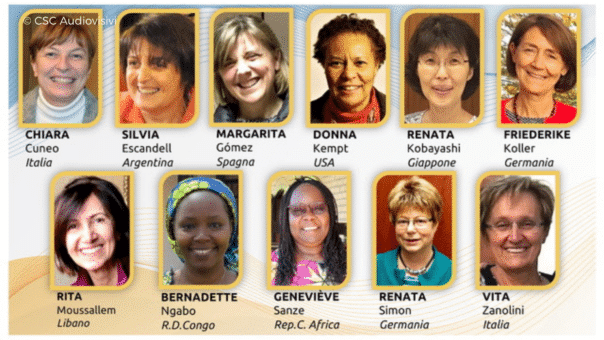
Feb 4, 2021 | Non categorizzato
Diary No.11 of the General Assembly 4th February Between yesterday and today the 22 new general councilors of the Focolare have been elected. They come from 16 countries and 4 continents, their ages range from 52 -70 and they truly represent the multiculturality that is a characteristic of the Focolare Movement. Many of them have lived in various geographical areas besides their country of origin, an important factor for getting to know in depth, the characteristics, needs and challenges of the many countries in which those who identify themselves in the Focolare’s message of unity, are living. At the opening of the voting for the councilors Margaret Karram said: ”Let us ask for the Holy Spirit so that we can be guided only by him”; in fact this is only the first step towards the composition of the new “Center of the Movement”. Shortly, the newly elected President will distribute their specific tasks to each one. The intense work of today was concluded with a session dedicated to the presentation and approval of various proposals. Tomorrow the work will continue in plenary with sessions of dialogue on the plans and directions for the next 6 years. In the meantime, let’s get to know the names of the newly elected councilors and where they come from.
 |
Women Councilors Cuneo Chiara (Italy) Escandell Silvia (Argentina) Gomez Margarita (Spain) Kempt Donna Lynn (USA) Kobayashi Renata (Japan) Koller Friederike (Germany) Moussallem Rita (Lebanon) Ngabo Bernadette (Dem. Rep. Congo) Sanze Genevieve (Central African Republic) Simon Renata (Germany) Zanolin Clara (Italy)
|
|
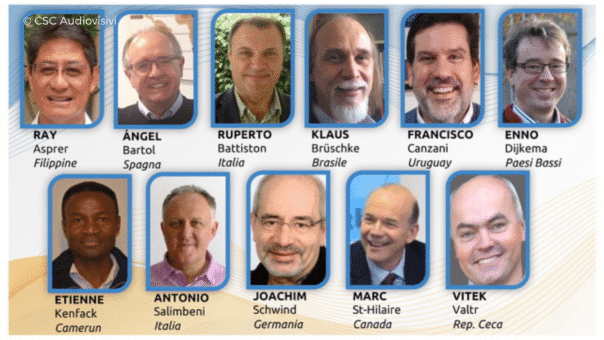
|
Men Councilors Asprer Ray (Philippines) Bartol Angel (Spain) Battiston Ruperto (Italy) Bruschke Klaus (Brazil) Canzani Francisco (Uruguay) Dijkema Enno (Holland) Kenfack Etienne (Cameroon) Salimbeni Antonio (Italy) Schwind Joachim (Germany) St-Hilaire Marc (Canada) Valtr Vit (Czechia)
|
Focolare Communications Office Text in PDF
Feb 4, 2021 | Non categorizzato
How to watch English subtitles, click here https://youtu.be/01Yu21H5vbg
![Voting has started for the men and women general councilors]()
Feb 3, 2021 | Non categorizzato
Diary of the General Assembly no.10, 3rd February 2021 Today’s program is dedicated once again to voting. The General Assembly has met together in a plenary session to begin the process of voting, so as to elect the men and women general councilors of the Focolare Movement and this will conclude tomorrow.

The Electoral Commission at work
Feb 3, 2021 | Non categorizzato
How to watch English subtitles, click here https://youtu.be/Z0azW5nKBQU

Feb 3, 2021 | Non categorizzato
Despite restrictions imposed by the pandemic, the Focolare community in Toronto remains close to a sick mother and her family “I don’t feel alone on this journey, and it’s thanks to all of you who are my family!”. Susan lives in Toronto, Canada. She has five children and was diagnosed with advanced cancer about a year ago. Her journey has been a rocky one, with moments of progress and feelings of hope alternating with moments of trial when her health deteriorated. But sharing her experience with the Focolare community, of which she has been a member for a long time, has helped to relieve the burden of her suffering and echo her joy.  Not even the restrictions imposed by the pandemic can stop them sharing this suffering. It must be because love can overcome the most difficult obstacles. The same is true for the fraternal relationships linking members of the community together. From the Focolare in Toronto they said: “When Susan shared the situation with all of us, she told us she felt at peace and wanted to offer her suffering for everyone affected by the pandemic. We assured her of our personal prayers, and one of our families had the idea of meeting together on Zoom to pray the Rosary for her healing”. So since last March, members of the Toronto Focolare community have been meeting on Zoom every Sunday at 4pm: “We take turns praying one decade of the Rosary, and leave Susan and her family to pray the fifth decade”. It is such a strong moment of prayer that they feel the spiritual presence of Jesus among them, according to the Gospel which says “Where two or three are gathered in my name, there am I in the midst of them” (Mt 18:15-20). And through the intercession of Chiara Lubich, founder of the Focolare Movement, they are asking for Susan to be healed. “When we finish praying,” they continue, “Susan gives us an update on the treatment, and we all rejoice with her and Nino, her husband, if there has been progress and suffer with them in the difficult moments. She continues to tell us that she feels stronger spiritually and emotionally thanks to the spiritual presence of Jesus among us and that we are all carrying this suffering together!” Love for this mother and her family is also being expressed in very concrete gestures. If the doctors prescribe rest and advise against cooking, then the community takes it in turns to prepare a meals for the family which is different every time. “It’s incredible”, they say, “with love, you can overcome every difficulty, even those caused by the virus with the lockdown. For Susan’s family, especially the young children, it is always a great joy to see what has arrived for dinner because every time, from our multicultural community, there is a dish from a different world cuisine. This experience with its many acts of love has made us grow as a community”. It is this feeling of family that is giving Susan courage, and it is from this love for Susan that the community is rediscovering itself as a family every day.
Not even the restrictions imposed by the pandemic can stop them sharing this suffering. It must be because love can overcome the most difficult obstacles. The same is true for the fraternal relationships linking members of the community together. From the Focolare in Toronto they said: “When Susan shared the situation with all of us, she told us she felt at peace and wanted to offer her suffering for everyone affected by the pandemic. We assured her of our personal prayers, and one of our families had the idea of meeting together on Zoom to pray the Rosary for her healing”. So since last March, members of the Toronto Focolare community have been meeting on Zoom every Sunday at 4pm: “We take turns praying one decade of the Rosary, and leave Susan and her family to pray the fifth decade”. It is such a strong moment of prayer that they feel the spiritual presence of Jesus among them, according to the Gospel which says “Where two or three are gathered in my name, there am I in the midst of them” (Mt 18:15-20). And through the intercession of Chiara Lubich, founder of the Focolare Movement, they are asking for Susan to be healed. “When we finish praying,” they continue, “Susan gives us an update on the treatment, and we all rejoice with her and Nino, her husband, if there has been progress and suffer with them in the difficult moments. She continues to tell us that she feels stronger spiritually and emotionally thanks to the spiritual presence of Jesus among us and that we are all carrying this suffering together!” Love for this mother and her family is also being expressed in very concrete gestures. If the doctors prescribe rest and advise against cooking, then the community takes it in turns to prepare a meals for the family which is different every time. “It’s incredible”, they say, “with love, you can overcome every difficulty, even those caused by the virus with the lockdown. For Susan’s family, especially the young children, it is always a great joy to see what has arrived for dinner because every time, from our multicultural community, there is a dish from a different world cuisine. This experience with its many acts of love has made us grow as a community”. It is this feeling of family that is giving Susan courage, and it is from this love for Susan that the community is rediscovering itself as a family every day.
Claudia Di Lorenzi
Feb 2, 2021 | Non categorizzato
General Assembly Diary 9/ 2 February 2021 After the first ten days, the Focolare General Assembly has reached a turning point. The election of the new President Margaret Karram, and the Holy See’s confirmation today of the re-election of Co-President Jesús Morán, completes the first phase. Tomorrow, in her first official duty, the new President will establish the number of General Counsellors to be elected by the Assembly. These cannot be less than 20, in line with a recent modification to the General Statutes of the Movement. Today, as the Assembly continued working on the direction and lines of action for the next six years, greetings and congratulations to the newly elected president have been pouring in from around the world. Here are a few highlights: “With great pleasure we heard of your election as new president of the Focolare Movement. […] Being so expert in dialogue between cultures […] your nomination will strengthen the witness of unity among cultures and religions. […] In the cooperation of ‘Together for Europe’ we wish to be a trustworthy partner in contributing to a new culture of unity”. P. Heinrich Walter, Schoenstatt Movement “Dear Margaret, […] I wish to congratulate you, on behalf, also, of Andrea [Riccardi] and all the Community of Sant’Egidio on this important role. […] We’ve met on various occasions already […] particularly in our shared commitment for unity among movements and ‘Together for Europe’. […] Building bridges and links of fraternity is a real necessity for our world and a ‘vocation’ for which your own personal story, your provenance from a land of suffering and conflict, makes you partcularly sensitive. […] In this spirit of fraternity, we’ll continue our friendship between the Focolare Movement and the Community of Sant’Egidio”.
Marco Impagliazzo, President of the Community of Sant’Egidio
“The Federation of the Fellowship of Christians and Jews in Italy expresses our sincere best wishes for your new role. […] We call to mind the light and colours of your cities: Haifa, Los Angeles and Jerusalem, and we hope to collaborate for the promotion of Jewish-Christian and inter-religious dialogue”. “With great pleasure, on behalf of the Union of Islamic Communities in Italy, I extend our hearty congratulations on your nomination as President of the Focolare Movement. On behalf of the communities I represent, I renew our wish to collaborate always on the way of dialogue, of sharing, of encounter, in the hope of gathering fruits of peace.” Yassine Lafram, presidenteUCOII “The Order of the Holy Sepulchre sends our best wishes to the newly-elected President of the Focolare Movement, Margaret Karram. […] As a Catholic Arab of Haifa, you have always been intensely involved in the activities of inter-religious dialogue working for the culture of encounter in the Holy Land.” Before concluding this diary, we ask you, our dear readers, for your collaboration. Disappointingly, documents, photos and recordings of the General Assembly are already being shared on various platforms. Let us not forget that this Assembly is not a public event. Please help us to protect the reserved nature of our Assembly. Please don’t join in the improper sharing of any content which has not been authorized by this office. Grazie! Thank you!
Focolare Communications Office
Text in PDF
Feb 2, 2021 | Non categorizzato
This is the second mandate for Jesús Morán, whose primary task is to fully support and collaborate with Margaret Karram, the newly elected president of the Focolare Movement. The election of the co-president was also welcomed by the Focolare Assembly with worldwide applause and today, the Dicastery for Laity, Family and Life confirmed his appointment: Jesús Morán has been re-elected co-president of the Focolare. This is his second term of office after the one just concluded alongside Maria Voce. Jesús Morán is 63 years old and was born in Navalperales de Pinares, Avila (Spain). He first came across the Gospel message proposed by the Focolare Movement during his university studies, through the witness of some of his fellow students. He graduated in Philosophy from the Autonomous University of Madrid and obtained a Licentiate in Dogmatic Theology from the Pontifical Catholic University of Santiago de Chile and a Doctorate in Theology from the Pontifical Lateran University in Rome. From 1996 to 2004 he was Focolare delegate for Chile and Bolivia, where he was ordained a priest on 21 December 2002. From 2004 to 2008 he was co-responsible for the Movement in Mexico and Cuba. At the 2008 Focolare General Assembly he was elected General Councillor and responsible for the cultural formation of the Movement’s members. In 2009 he became a member of the “Abba School”, an interdisciplinary study centre of the Focolare Movement, due to his expertise in theological anthropology and moral theology. Since 2014 he has been co-president of the Focolare Movement. The duties of the Co-President The first duty of the Co-President is full support and collaboration with the President. The Statutes of the Focolare speak of “the fullest unity with the President” in order to offer her the possibility of examining ideas and decisions, listening and searching together for the will of God. He is responsible for the priests who adhere to the Focolare and ensures that the internal life and activities of the movement are in conformity with the faith and morals of the Church.
Stefania Tanesini
Feb 1, 2021 | Non categorizzato
How to watch English subtitles, click here https://youtu.be/QW3HIijcpqY
Feb 1, 2021 | Non categorizzato
Elected on 31 January, she is the third President to lead the Movement after the founder, Chiara Lubich, and after Maria Voce who has just completed two terms. PRESS RELEASE – 1st February 2021 Yesterday, Margaret Karram, was elected President of the Focolare Movement with more than two thirds of the votes cast among the participants in the General Assembly of the Movement, composed of 359 representatives from all over the world. She succeeds the founder Chiara Lubich and Maria Voce who was in office for 12 years (two terms). Margaret Karram was born in Haifa, Israel in 1962 into a Palestinian Catholic family. She holds a B.A. in Jewish Studies from the American Jewish University in the United States. She has held various positions for the Focolare in Los Angeles and in Jerusalem. Her past experience includes membership of various commissions and organizations for the promotion of dialogue between the three monotheistic religions, such as the Episcopal Commission for Interreligious Dialogue, the Assembly of the Catholic Ordinaries of the Holy Land and the ICCI (Interreligious Coordinating Council in Israel). She worked for 14 years at the Consulate General of Italy in Jerusalem. Since 2014, she has been at the International Centre of the Focolare as councillor for Italy and Albania and co-responsible for Dialogue between Ecclesial Movements and New Catholic Communities. She speaks Arabic, Hebrew, Italian and English. In 2013 she received the Mount Zion Award for Reconciliation, together with the scholar and researcher Yisca Harani, for their commitment to developing dialogue between different cultures and religions. In 2016 she received the St Rita International Award for having promoted dialogue between Christians, Jews, Muslims, Israelis and Palestinians, starting from people’s everyday life. The election took place yesterday, 31 January 2021, but her appointment only became effective today, following confirmation by the Dicastery for the Laity, Family and Life, as envisaged by the General Statutes of the Focolare Movement. The document expresses the hope that the new president will be able to carry out her task “with faithfulness, in a spirit of service and ecclesial sensitivity, for the good of the members of the Movement and of the universal Church.” Duties of the Focolare President According to the Movement’s General Statutes, the President is chosen from among the focolarine (consecrated women with perpetual vows) and will always be a woman. In the Statutes we read, she “is the sign of the unity of the Movement”. This means that she represents the great religious, cultural, social and geographical variety of those who adhere to the spirituality of the Focolare in the 182 countries where the Movement is present and who identify with the message of fraternity that the founder, Chiara Lubich, drew from the Gospel: “Father, that they may all be one” (Jn 17:20-26). There are many commitments and challenges awaiting Margaret Karram in the coming years: the tasks of governing and directing a worldwide Movement like the Focolare, which is deeply immersed in local and global realities and the challenges of humanity, starting from this time of pandemic. The Statutes also indicate the “style” that should distinguish the work of the President: “Hers is to be, above all, a presidency of love – they state – because she must be the first in loving and, therefore, in serving her own brothers and sisters, remembering the words of Jesus: “Whoever wishes to be first among you must be the servant of all” (Mk 10:44). The primary commitment of the President, therefore, is to be a builder of bridges and a spokesperson for the central message of the spirituality of the Focolare, ready to practise and spread it, as we read further on, even at the cost of her own life. The next steps of the General Assembly of the Focolare are the election of the Co-President this afternoon and of the councillors on 4th February. Stefania Tanesini -Cell. +39 338 5658244 Text in PDF
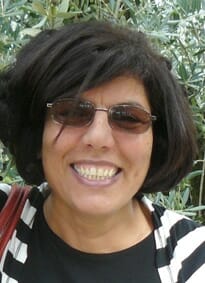
Feb 1, 2021 | Non categorizzato
The new president of the Focolare Movement for the next six years is Margaret Karram, born 1962 in Haifa (Israel).  The election, which required a two-thirds majority of those present, took place on Sunday 31 January, and has been approved by the Dicastery for the Laity, Family and Life, in accordance with the Movement’s Statutes. The new President – who by Statute will always be a woman – is to guide the Movement through the next six years. The current General Assembly of the Focolare Movement, which elected the new President, is being conducted entirely online due to the pandemic. It began on January 24 and will conclude on February 7, 2021. It’s the third General Assembly since the death of founder Chiara Lubich. 359 people are taking part around the world. They represent some of the different cultures, generations, vocations, members of different churches and religous faiths who are part of the Focolare Movement. With the election of the President, on February 1 the Co-President will be elected, who according to the Statutes must be a Focolarino priest, then the counsellors who will collaborate in the central governance of the Movement. Press statement to follow.
The election, which required a two-thirds majority of those present, took place on Sunday 31 January, and has been approved by the Dicastery for the Laity, Family and Life, in accordance with the Movement’s Statutes. The new President – who by Statute will always be a woman – is to guide the Movement through the next six years. The current General Assembly of the Focolare Movement, which elected the new President, is being conducted entirely online due to the pandemic. It began on January 24 and will conclude on February 7, 2021. It’s the third General Assembly since the death of founder Chiara Lubich. 359 people are taking part around the world. They represent some of the different cultures, generations, vocations, members of different churches and religous faiths who are part of the Focolare Movement. With the election of the President, on February 1 the Co-President will be elected, who according to the Statutes must be a Focolarino priest, then the counsellors who will collaborate in the central governance of the Movement. Press statement to follow.
Lorenzo Russo – Focolare Communications Office
Feb 1, 2021 | Non categorizzato
We always have only one moment in which to love God and our brothers or sisters: the present moment. Chiara Lubich taught this concept with wisdom and simplicity. Committing ourselves to living the present moment well is a method whereby each of us can be fulfilled and achieve happiness. There are, even among us, those who finish their Holy Journey after a long wait and those who finish it in a flash, when they least expect it. And so the question arises: what will it be like for us? And the conclusion comes naturally: it is good to always be prepared. In what way? By remaining in the grace of God and living the present moment to the full. It was for this reason […] that in these last few days I focused my attention once again on that very characteristic aspect of our spirituality that consists in concentrating on living the present moment. And my thoughts turned to so many phrases taken from the saints, for example, that encourage us to put this into practice perfectly. Do you remember? St. Catherine of Siena said: “We do not possess the toil of the past, because that time has escaped us; nor the toil that is to come, because we cannot be certain of having that time.”[1] By saying this, she extended an invitation to live the present. And St. Therese of Lisieux: “You know, my God, that to love You… I only have today.”[2] Then I remembered a motto that was useful to us in the past and which we remembered very easily because each word [in Italian] began with an “s”: Sarò Santa se Sono Santa subito, (I will become a saint if I am a saint straightaway). During these few days I have often noticed that this way of living our life was precious also to other saints who recommended it warmly. St. Paul of the Cross wrote “Fortunate is the soul which rests ‘in sinu Dei,’ without thinking of the future, but manages to live moment by moment in God, with no other concern than to do his will well in all that happens.”[3] “Fortunate is that soul…” We can make this fortune our own, because it is part of our spirituality to live like this. It is by living in the present that we can fulfil all our duties well. It is by living in the present that crosses become bearable: with good reason this practice is recommended for those who are nearing death. It is by living in the present that we can grasp God’s inspirations, the impulses of his grace that come to us in the present. […] So let’s live the present moment! […] Let us live it to perfection! In the evening of each day and in the evening of life we will find ourselves full of good works that have been accomplished and acts of love offered. …
Chiara Lubich
(Taken from a telephone Conference Call, Rocca di Papa, 23 October 1986) [1] St Catherine of Siena, Her Letters, II, Paoline, Alba 1966, p. 97. [2] St. Therese of the Child Jesus, Complete Works, LEV, Vatican City 1997, p. 626. [3] Paul of the Cross, Letters, I, Pontifical Institute of Pius IX
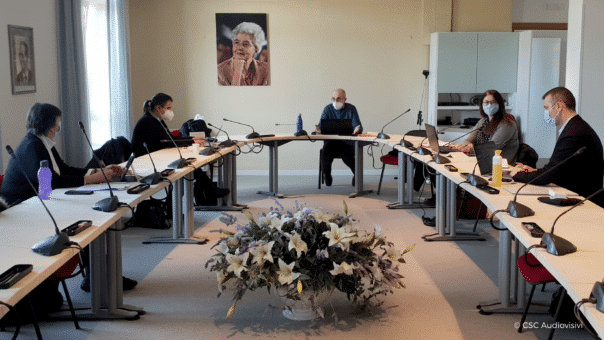
Jan 31, 2021 | Non categorizzato
General Assembly Diary 8 – January 31, 2021 “Listen to the voice of the Lord today”! These words, taken from Psalm 94/95, “the thought for the day”, also known also as “Passaparola”, which reaches Focolare members worldwide daily, could not have been more appropriate. In fact, the elections for the future President of the Focolare Movement started today, and the first priority for the voters is to listen well to the voice of God to identify the right person who would be the president for the next six years.

Electoral commission
- she must be elected by at least two thirds of the eligible voters present. This fairly high proportion of voters expresses the wish of the founder, Chiara Lubich so that there would be the greatest possible consensus for this very important role. At the request of the participants, the election process can be interrupted to give space for communion in a plenary session and in small groups;
- having reached the necessary majority, the candidate must accept her election in front of the Assembly;
- then one has to wait patiently a bit more because there is the third step to be followed. Since the Movement is an association of pontifical right, the elected President – and later also the Co-President – must be confirmed by the Holy See, specifically by the Dicastery for the Laity, the Family and Life. It is only after this confirmation that the election is valid and can be communicated.
An electoral commission, presented to the Assembly and confirmed at its first plenary session on January 24, ensures that election rules are followed. The five members are all legal experts: Danilo Virdis, a married focolarino from Italy; Flavia Cerino, a focolarina from Italy, Laura Bozzi, a volunteer from Italy; Waldery Hilgeman, a volunteer from Holland and Sr. Tiziana Merletti, an Italian Franciscan. The election process will continue tomorrow, February 1. Once the President has been elected, the Co-President will be elected in the same way.
Communication Office of the Focolare Movement
Text in PDF
Jan 31, 2021 | Non categorizzato
How to watch English subtitles, click here https://youtu.be/WXdE7Z4PfU0
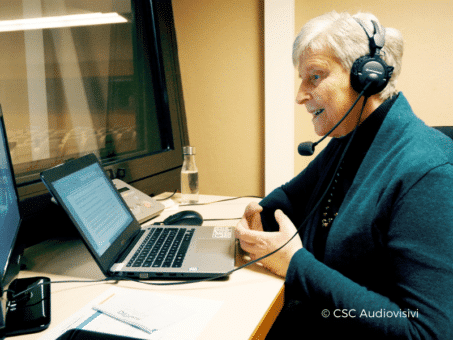
Jan 30, 2021 | Non categorizzato
General Assembly Diary 7 30 January 2021 As the Assembly continues to work on the priorities and lines of action for the next six years, today we’d like to offer a glimpse behind the scenes, to get to know the people who are keeping the “machine” working, without whom none of this could happen. The online nature of the event called for a network of collaborators and technicians specialized in different fields, indispensible not only for the efficacy of the digital platform but also to guarantee the juridical validity of this Assembly. 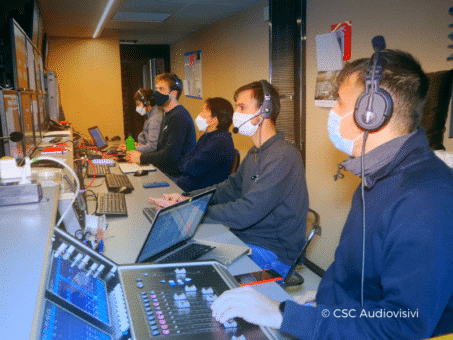 No less than 73 people comprise the technical team of the Focolare General Assembly. Many are physically present in the Movement’s international centre at Rocca di Papa in Italy, while others collaborate remotely from many parts of world including Brazil, the Philippines, France, Guatemala, Britain, Ireland, Italy, the Netherlands, Spain, Thailand and USA. Twenty I.T. experts are working on the web pages and various apps. 14 hosts, divided into two teams, run all the various video-conferences. 34 translators in 7 countries guarantee the participants have simultaneous translations in 5 languages (French, English, Italian, Portughese and Spanish). Then there is the 5-person squad responsible for the general coordination of all the technical teams. But it’s more than a network of collaborators or technical experts, according to Francesco Mazzarella, one of the video-conference hosting team working from Sicily. He writes:
No less than 73 people comprise the technical team of the Focolare General Assembly. Many are physically present in the Movement’s international centre at Rocca di Papa in Italy, while others collaborate remotely from many parts of world including Brazil, the Philippines, France, Guatemala, Britain, Ireland, Italy, the Netherlands, Spain, Thailand and USA. Twenty I.T. experts are working on the web pages and various apps. 14 hosts, divided into two teams, run all the various video-conferences. 34 translators in 7 countries guarantee the participants have simultaneous translations in 5 languages (French, English, Italian, Portughese and Spanish). Then there is the 5-person squad responsible for the general coordination of all the technical teams. But it’s more than a network of collaborators or technical experts, according to Francesco Mazzarella, one of the video-conference hosting team working from Sicily. He writes: 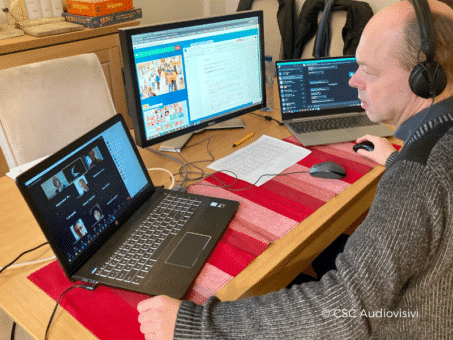 Behind the online Assembly, a group of people around the world, the so-called technical experts, have been ‘meeting’. We’ve been getting to know each other and creating a bond far beyond the technical aspect because there’s been a spiritual sharing among us too. It’s come about gradually, through a process of what we could call ‘techno-relationship’. Most of the time, we don’t think about all that has to happen before an event can take place. Today, the challenge goes via the internet, with the all uncertainties and challenges involved, and with all the possibilities it contains too. To manage these moments online without seeing each other face to face, without being able to physically shake each other by the hand, is the real challenge of this Assembly.
Behind the online Assembly, a group of people around the world, the so-called technical experts, have been ‘meeting’. We’ve been getting to know each other and creating a bond far beyond the technical aspect because there’s been a spiritual sharing among us too. It’s come about gradually, through a process of what we could call ‘techno-relationship’. Most of the time, we don’t think about all that has to happen before an event can take place. Today, the challenge goes via the internet, with the all uncertainties and challenges involved, and with all the possibilities it contains too. To manage these moments online without seeing each other face to face, without being able to physically shake each other by the hand, is the real challenge of this Assembly.  But the greatest issue for the technicians is about making a gift of our own competencies, which have been acquired through much personal sweat and study. This requires a kind of exchange of trust. Let me explain myself. A technican, even those who have made a choice to follow the principles of the spirituality of unity in their work, is still a professional who takes personal pride in their work and their own skills. The willingness to share methods or procedures that have been learnt with so much personal effort and study is not automatic. It requires a real act of faith, trusting that the others are there out of love, trusting that by so giving we are contributing to building the Assembly. So it’s a connection of electronic signals and of souls which constitutes the foundation and techo-relationships of this adventure called our online Assembly. Usually, the technicians only come to our attention when something isn’t working properly. In this Assembly, it’s different. Their work and their “style” are building this event, day by day. Thanks to each one of them!
But the greatest issue for the technicians is about making a gift of our own competencies, which have been acquired through much personal sweat and study. This requires a kind of exchange of trust. Let me explain myself. A technican, even those who have made a choice to follow the principles of the spirituality of unity in their work, is still a professional who takes personal pride in their work and their own skills. The willingness to share methods or procedures that have been learnt with so much personal effort and study is not automatic. It requires a real act of faith, trusting that the others are there out of love, trusting that by so giving we are contributing to building the Assembly. So it’s a connection of electronic signals and of souls which constitutes the foundation and techo-relationships of this adventure called our online Assembly. Usually, the technicians only come to our attention when something isn’t working properly. In this Assembly, it’s different. Their work and their “style” are building this event, day by day. Thanks to each one of them!
Focolare Communications Office
Text in PDF
Jan 30, 2021 | Non categorizzato
The story of Irena, a doctor in Lithuania who is a member of the Focolare Movement in Eastern Europe who was infected with the Covid-19 virus. She experienced both the fatigue of illness and the strength in God’s love through prayer. “I’m inundated with messages and prayers. I don’t even know how my friends, acquaintances, colleagues hear about it. Even friends who I didn’t even know knew how to pray are praying. I had no idea that so many people could join in prayer for my health.” Irena is a hospital doctor, a member of the Focolare Movement who lives in Lithuania, in Eastern Europe. During these months that her country has been affected by the Covid-19 pandemic, her work became exhausting, and she was infected by the virus and experienced all the fatigue of the disease. But her strength, she says, has come from her trust in God’s love. Her discovery of being united with many people in prayer rewarded her personal efforts and gave energy to her healing journey. Her experience was particularly hard. At first, work on the ward continued at the usual pace, but soon the contagion spread among her colleagues. Irena found herself working alone. “I had to find places for staff to be sent to isolation,” she explains, “to settle patients who had to be discharged because there was no one to care for them and contact relatives so they could take care of them. “There were no masks for the patients, and I would hand them out my own. Once, with a colleague who stayed after hours, we examined 37 patients. Only the night was calm, and I could pray.” After days in the hospital without rest, Irena was able to return home. Yet it was with the knowledge that she had contracted the disease. She was relieved to feel the spiritual closeness of Focolare founder Chiara Lubich. “On the shelf next to my bed there was a photo of Chiara smiling, and I saw her as if for the first time. She smiled at me and I smiled at her, everything became easier.” Gradually, the symptoms of the disease became more burdensome, but Irena did not give in to the pain. “I lost my taste receptors and realized that even the sense of taste is a gift from God. I offered my suffering for my colleagues and for my country. The nights were very difficult, but Chaira was with me smiling.” When the disease became more aggressive, hospitalization became inevitable, and this brought new challenges. “I no longer had the strength to speak, and I underwent an experimental treatment. The person in charge took care of me, but the nurses forgot to bring me my medication and didn’t ask if I had the strength to take food from the cart. But I could offer these hardships as well.” Here, too, help came from those close to her. “In my room there was a lady with cancer, and she brought me food, drinks. We became friends, and when I felt better, we prayed together.” Feeling united in prayer with the many people who prayed for her allowed Irena to feel loved, by God and by her brothers and sisters. “I am grateful to God for the indescribable love that I experienced during my illness,” she says, “because I always felt him near me, and for the beautiful experience of common prayer, which has huge power, and God has allowed me to experience it live. I feel reborn.”
Claudia Di Lorenzi
Jan 30, 2021 | Senza categoria
How to watch English subtitles, click here https://youtu.be/_K8Vbe0_LCk
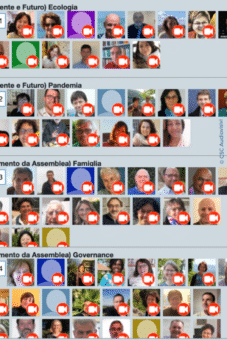
Jan 29, 2021 | Senza categoria
General Assembly Diary 6, 29 January 2021 “Open Space Technology” is being adopted by the Focolare General Assembly to conduct its group work today and tomorrow. The system permits the 359 participants linked online around the world to divide into virtual working groups to speak and dialogue in a more intimate way, as if seated around the same table.  To facilitate participation across all the lines of latitude, the work sessions are organized in three different time zones, corresponding to the geographical groupings of Asia and Oceania; Africa, Europe and the Middle East; the Americas. The fact that the Assembly is dedicating several days to working in groups, to consider and discuss a range of topics, demonstrates the strongly-felt need for a global dialogue at the heart of it all. This was evident from the start of the pre-assembly process two years ago which got many different Focolare communities around the globe involved. Individuals and groups participated in a worldwide program of reflection, and sent the Assembly Planning Commission over 3,000 proposals of what should be covered in these days. These ideas were gathered and collated into 16 general topic areas. From these, a subsequent international survey among Focolare members identified four priority themes: – a profound consideration of the roots of the charism of unity today; – implementing the charism in all areas, in collaboration with the Churches, with institutions, with the faithful of different religions and with people of good will; – giving particular attention to an integral ecology which considers how to take care of the person, the family and our common home, with an outlook to the future; – living inter-generational dialogue, particularly with the new generations. During these opening days of the Assembly, the participants have added another three macro-groups of topics, namely: – family – governance – option for the least, for the excluded. What emerges from the working groups over these days will form a substantial contribution to the production of the ‘final document’ which will outline the future direction and prospects “for the guidelines that will be elaborated and implemented above all locally and in profound synergy between the international centre and the Movement present in the different geographical zones”, as Maria Voce said yesterday. The final document will be drawn up by an editorial team of eight Assembly members. The text will then be presented for approval by the whole General Assembly.
To facilitate participation across all the lines of latitude, the work sessions are organized in three different time zones, corresponding to the geographical groupings of Asia and Oceania; Africa, Europe and the Middle East; the Americas. The fact that the Assembly is dedicating several days to working in groups, to consider and discuss a range of topics, demonstrates the strongly-felt need for a global dialogue at the heart of it all. This was evident from the start of the pre-assembly process two years ago which got many different Focolare communities around the globe involved. Individuals and groups participated in a worldwide program of reflection, and sent the Assembly Planning Commission over 3,000 proposals of what should be covered in these days. These ideas were gathered and collated into 16 general topic areas. From these, a subsequent international survey among Focolare members identified four priority themes: – a profound consideration of the roots of the charism of unity today; – implementing the charism in all areas, in collaboration with the Churches, with institutions, with the faithful of different religions and with people of good will; – giving particular attention to an integral ecology which considers how to take care of the person, the family and our common home, with an outlook to the future; – living inter-generational dialogue, particularly with the new generations. During these opening days of the Assembly, the participants have added another three macro-groups of topics, namely: – family – governance – option for the least, for the excluded. What emerges from the working groups over these days will form a substantial contribution to the production of the ‘final document’ which will outline the future direction and prospects “for the guidelines that will be elaborated and implemented above all locally and in profound synergy between the international centre and the Movement present in the different geographical zones”, as Maria Voce said yesterday. The final document will be drawn up by an editorial team of eight Assembly members. The text will then be presented for approval by the whole General Assembly.
Focolare Communications Office
Text in PDF
Jan 29, 2021 | Non categorizzato
How to watch English subtitles, click here https://youtu.be/fDVpXyp9InE
Jan 29, 2021 | Non categorizzato
How has Maria Voce lived her role as the first President of the Focolare Movement after Chiara Lubich? In a recent interview with Vatican Radio on 27 January, she speaks of the current situation of the Movement and how it relates to the message of Pope Francis. We publish some of the main areas covered. It’s certainly no small undertaking to preside over such a vast and complex reality as the Focolare Movement, with over 2 million people adhering to its message in 182 countries. The outgoing president is Maria Voce, born in Cosenza Province in southern Italy, a lawyer by profession, with further studies in theology and canon law. In this interview for Vatican Radio, she recounts her experience of 12 years at the helm of the Movement. Joys and sufferings, even failures here and there, limitations and opportunities: the life of the Movement has surely always been made of these, and in recent years too. If you had to describe in just a few words what the reality of the Focolare is today, what would you say? I could describe it as a tree, a tree which may have shed some of its blossom and leaves, perhaps becoming more autumnal as an image, but a tree all the same with very strong roots still intact. These roots are capable of containing and maintaining the lymph and warmth necessary for nourishing the seeds of this tree, which have already spread throughout every continent across the world. Therefore it still has the possibility of continuing to nourish them and make them germinate, as they are in fact germinating in many places. Just now, maybe we see them in a winter setting, with winter temperatures, but it’s actually in winter that the seeds mature below ground in order to be able to flower in spring. And I think it’s a tree that’s preparing a new spring time in the Movement. Pope Francis and the Focolare Movement: you are obviously in great accord from the perspective of openness to dialogue and the need to build a different kind of world. In particular, the Pope’s appeal for fraternity in the human family finds the Movement in the front line in terms of dialogue with members of other religions and with those of non-religious beliefs. How do you see the Movement’s contribution in this? I think it’s essential. Because it was always essential to Chiara from the very beginning. Undoubtedly through the grace of the charism of unity received from the Holy Spirit, from the start she felt drawn to approach every person in the spirit of fraternity. And she did this all the time, whoever she met. Catholics in the early days, from the Monsignors who were interrogating her, as we saw in the new film about Chiara, to the poor people living in Trento. The same when she met members of other Churches, of other religions or people without a religious faith. Chiara met brothers and sisters in everyone, and she treated them as such. Chiara taught us this approach and it remains in the Movement, and we see this as an extraordinary source of power. We’ve also recognized it in these days leading up to our Assembly. Members of the Movement who belong to different Churches and religions, or who are of good will without a specific religious affiliation, have been active in the preparations, testifying in particular to the power of love which is capable of creating relationships at all levels, capable of overcoming conflicts, capable of enabling you to meet together with people from a different religion to your own, even if up to yesterday you were sworn enemies. But now, we discover one another as persons, who can pray together, who can together seek the meaning of life, the significance of the pandemic, what it means to live for others, to act in solidarity with others. We’ve seen it in their words of wisdom, in their interest in what the Movement is preparing, in their active participation in the Assembly preparations, with their suggestions, with their life, because obviously inspired by the same Holy Spirit who moves beyond all borders and all barriers. So I have the impression that it’s this contribution which the Pope feels he can count on. But not only the Pope, the whole Church and all humanity. Because there’s a dire need for this fraternity and the Movement has a special grace to build it precisely because of the charism of unity which comes from Chiara. Talking about relationships, you recently made some strong comments about the need for the Movement to take a new step in understanding that God is not only Love, but also Trinity … God is Trinity, which means God in himself is relationship. This means that all who seek God, must build relationships in order to find him. And I don’t believe there’s anyone who is not searching for God. They might search for the truth, and God is truth. They might seek beauty, and God is beauty too. They might search for goodness in the world, and God is also goodness. God is everything any human being can search for and can be found if we build relationships. And I believe everyone is capable of this, because we’re all created in the image of God, in the image of God Trinity. According to your Statutes, the President of the Work of Mary will always be a woman. I believe the Movement is one of the few places in which you could say being a woman is actually an advantage. But it’s also sending a good message to civil society and the Church … I must admit to be somewhat perplexed by the use of the word “advantage”. Because to tell you the truth, being at the head of a Movement like ours actually means being the first to serve, the first to increase your acts of love, the first to accept any kind of challenge, anything and overcome it with the help of God and of your brothers and sisters. So, while in one sense, it might be an advantage to be considered capable of being elected, I don’t really think this is the spirit in which we live it. And I don’t think the Focolarine women, who are the only ones who can ‘aspire’ to this, if you must put it this way, I don’t they live it like that. It’s much more with a spirit of love and service for Chiara’s Work which everyone wishes to continue to serve with the same love as Chiara loved and guided and served the Movement. And then, I do also think it can be a testimony to the kind of equality, of profound fraternity, of equal dignity, that goes beyond the differences of gender, which God brought to the world when he created humankind in his image and created male and female. So united in this complementarity, which respects diversity and enables each one to emerge in their own capacity to give, which will of course be different because God made two different beings, different but made to be together and to build humanity together in his image and likeness. In this sense, I think it can be seen as a sign of progress, of something emerging more and more in the Church and in society. But I think it’s nothing other than a manifestation of the Marian profile of the Church, the profile which says that Mary is woman, mother, but queen too, also with her Son on Calvary founder of the Church, ‘coredemptrix’ of humanity, principle of unity for all. In this sense, then, I think yes it’s a privilege the Movement can be proud of and can offer to the Church and the world as an example and forerunner, in some way. Maria Voce, today what do you wish for the Work of Mary of the future? For the Movement, I would wish, like Chiara, for the greatest fidelity to the Gospel, faithfulness that can reach a heroic level, because it’s fidelity to living the Gospel concretely. And I would say, for this Work to continue it’s journey, faithfulness to that word of the Gospel which God wished to pronounce by sending this charism, namely the word “unity”. So, faithfulness to this unity, which must be total. It must be capable of living relationships as they’re lived in the Trinity, in order to testify to the world that God exists, that through the Movement he can bring fraternity more widely in the Church and in the world, to contribute to fulfilling the prayer of Jesus, “Father, that they may all be one”.
Adriana Masotti
Click here for the full interview (in Italian)
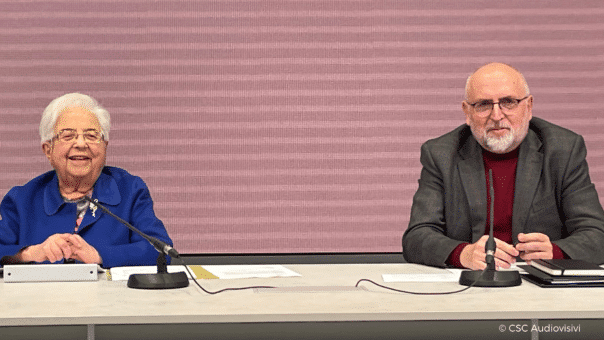
Jan 28, 2021 | Non categorizzato
General Assembly Diary 5 – January 28, 2021 Today, at the Focolari Assembly it has been a day of assessment. The programme included group discussion on the President’s report on the past six years. The participants received the document over a week ago and so each one had time to examine it in detail. Many questions emerged; some of which were put to the President Maria Voce and to Co-President Jesús Morán in the early afternoon.

Maria Voce and Jesús Morán
Focolare Communications Office
Text in PDF
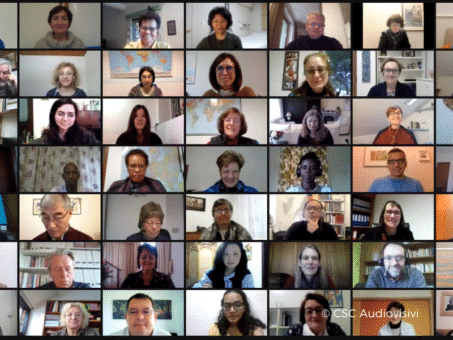
Jan 27, 2021 | Non categorizzato
General Assembly Diary 4, 27 January 2021 At the heart of the meditations, the reflections, and the communion in this third and final day of the spiritual retreat of the General Assembly, is the icon of the Most Blessed Trinity. This was presented as the model of a “collective holiness” by Maria Voce and as relationships of love that bring out the “design of God” on every person by Claudio Guerrieri.

Christians from two Orthodox Churches
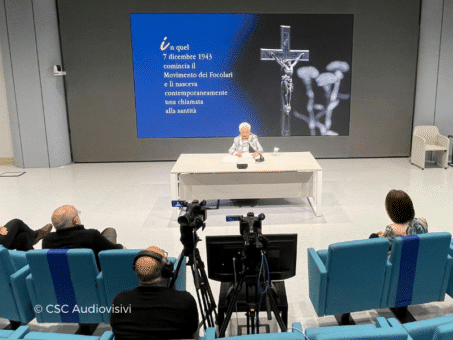
Maria Voce
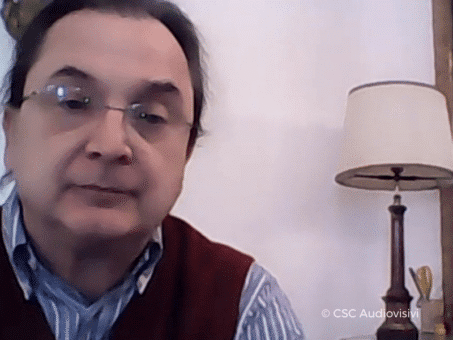
Claudio Guerrieri
 So, these three days of deep retreat have drawn to a close, at times maybe it was also a bit unsettling but full of ideas also for the decisions that have to develop. As one of the young people described in the final session of communion: “It’s been a moment for listening to one another and for trying to understand in what direction the Holy Spirit is calling the Focolare in this future period, and to whom to entrust the tasks for taking ahead this Work (of Mary) with the challenges and the opportunities that the next six years will present.”
So, these three days of deep retreat have drawn to a close, at times maybe it was also a bit unsettling but full of ideas also for the decisions that have to develop. As one of the young people described in the final session of communion: “It’s been a moment for listening to one another and for trying to understand in what direction the Holy Spirit is calling the Focolare in this future period, and to whom to entrust the tasks for taking ahead this Work (of Mary) with the challenges and the opportunities that the next six years will present.”
Focolare Communications Office
Text in PDF
Jan 27, 2021 | Non categorizzato
How to watch English subtitles, click here https://youtu.be/4gp92udqK0U
Jan 27, 2021 | Non categorizzato
Living for unity means contributing to it personally, on a daily basis, starting with relationships in the family, at work, certain that this transforms situations, creates communion, fraternity and solidarity. A different logic When I returned from Sunday Mass that morning I found the kitchen in complete chaos indicating that our son and his friends had been partying all night. It would have completely justifiable and serve as a lesson to leave everything it was so that it could be “seen” and we could then talk about it. However, the Gospel reading I had just listened to did not leave me in peace. It was about forgiveness. Forgive seventy times seven. As I began to clear up the kitchen, I felt a different kind of “justice” come to mind one based on a different kind of logic. It was as if the external disorder had to find space within me first. The anger and disappointment I felt towards our son gradually started to diminish. When our son woke up he asked me why I was so happy. Not registering a response, and after a period of silence, he began to open up. He had got into drugs and was asking for help. Later on we broke the news to his father. Like a seed, the Word began to germinate and as a result, our son’s situation and the whole family’s situation changed. (M. J. – Norway) A lesson from my daughter As head of a large department in the company where I work, I have always been committed to helping employees to do their best, competently and with precision. But after a few years someone asked to be dismissed and others were complaining. What was wrong? I didn’t understand…One day my youngest daughter taught me a great lesson. I was helping her with her homework and as I was scrolling through her notebook I started pointing out all the teacher’s corrections. She started to cry saying: ‘Daddy, do you only see the mistakes? Don’t you see all the pages with top marks?” I realised I was making exactly the same mistake at work: only seeing others’ faults. It was a real light for me. I realised I needed to put on a different pair of glasses, ones that give love. It wasn’t easy. I secretly started counting the times I did manage, and each day the number increased. One day one of the staff asked me why I was so happy, and it came naturally to tell him about the lesson my daughter had taught me. (J. G. – Portugal) Alcoholic husband Because my husband was an alcoholic, there were no more parties, anniversaries or friendships. All this would have been bearable were it not for the violent outbursts. We were living on his pension (when we managed to stop him spending it) and on the cleaning work I did in the apartment building. At times it demanded great heroism to keep going like this. “Why don’t you leave him?” my relatives and even our children, who had left home because of him, used to say but he would have ended up on the street and it was this that held me back. He was the father of my children. In the days leading up to an operation he had to undergo, the absence of alcohol made him even more irritable. Nevertheless, he agreed to undergo a detoxification programme. It took a long time but he did start to make progress. It was like watching a child learn to walk. After a few years, he regained the will to live, to enjoy his family and even his first grandchild. We are nearing the end of our lives but I can say that were it not for my faith I would not have had the strength to stay with him. (M. D. – Hungary)
Edited by Stefania Tanesini
(taken from Il Vangelo del Giorno, Città Nuova, year VII, no.1, January-February 2021)
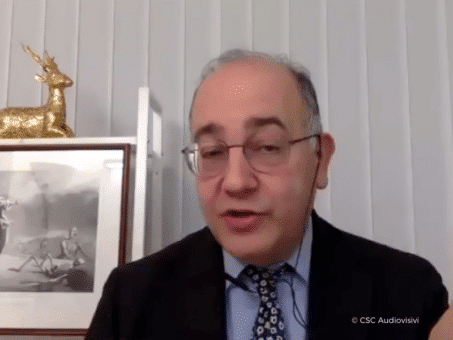
Jan 26, 2021 | Non categorizzato
General Assembly Diary 3, 26 January 2021
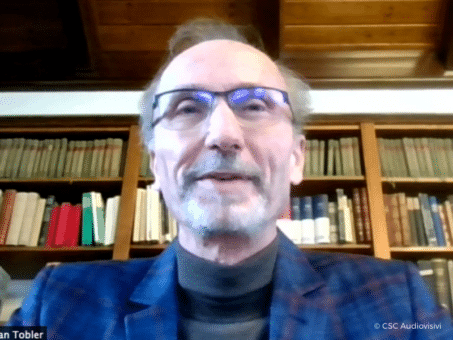
Stefan Tobler
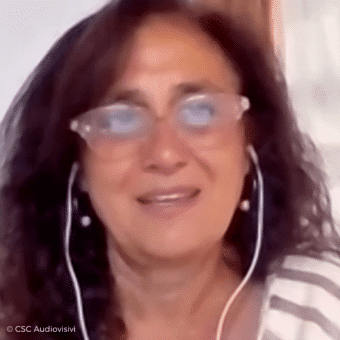
Silvina Chemen
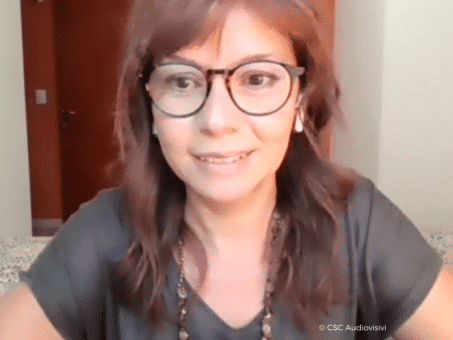
Paula Luengo

Luigino Bruni
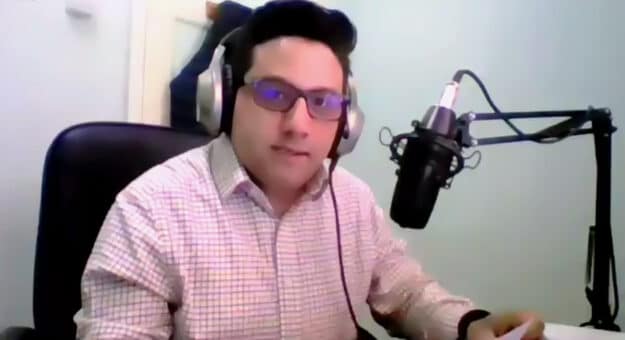
Jan 25, 2021 | Non categorizzato
General Assembly /25 January 2021 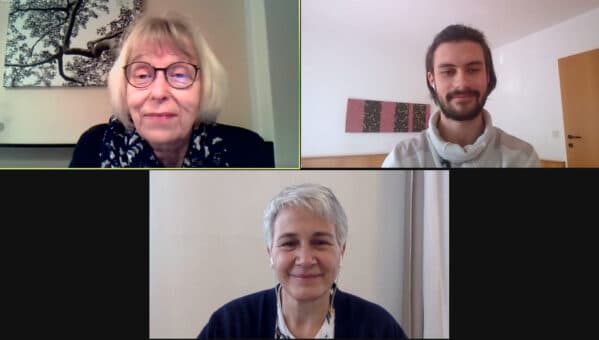 The second day of the General Assembly of the Focolare began with an ecumenical prayer presented by participants from various Churches. It was addressed to Jesus in his forsakenness on the cross, so that he would help each one to “grow in listening to one another”; teach us to “welcome together the Holy Spirit” and “the cry of today’s humanity” so as “to become instruments of unity”. Then there were further votes which had been put off from yesterday and which are necessary for adapting the regulation of the Assembly to an on-line format. So, the spiritual retreat for all the participants started a little late and it will finish on Wednesday 27th January. This is an essential moment in the Assembly, as it says in the Movement’s Statutes, “so that the voters…may be docile to the grace of the Holy Spirit.”
The second day of the General Assembly of the Focolare began with an ecumenical prayer presented by participants from various Churches. It was addressed to Jesus in his forsakenness on the cross, so that he would help each one to “grow in listening to one another”; teach us to “welcome together the Holy Spirit” and “the cry of today’s humanity” so as “to become instruments of unity”. Then there were further votes which had been put off from yesterday and which are necessary for adapting the regulation of the Assembly to an on-line format. So, the spiritual retreat for all the participants started a little late and it will finish on Wednesday 27th January. This is an essential moment in the Assembly, as it says in the Movement’s Statutes, “so that the voters…may be docile to the grace of the Holy Spirit.” 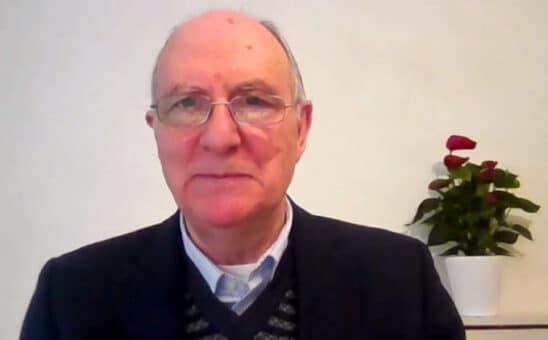 The first topic chosen, put the participants in front of what could be defined as the entrance key into the mysticism of Chiara Lubich: a solemn pact made by the foundress on 16th July 1949 with the politician and author Igino Giordani, co-founder of the Movement, in the Dolomites. In that pact – as was emphasized by Fr Fabio Ciardi, Oblate of Mary Immaculate and theologian in consecrated life – Chiara Lubich and Igino Giordani, asked Jesus who they had just received in the Eucharist to be the one to create unity between them. They asked him to use their full and mutual readiness to welcome the other, to value the thought of the other and in this way to open up a space to allow the Holy Spirit to enter.
The first topic chosen, put the participants in front of what could be defined as the entrance key into the mysticism of Chiara Lubich: a solemn pact made by the foundress on 16th July 1949 with the politician and author Igino Giordani, co-founder of the Movement, in the Dolomites. In that pact – as was emphasized by Fr Fabio Ciardi, Oblate of Mary Immaculate and theologian in consecrated life – Chiara Lubich and Igino Giordani, asked Jesus who they had just received in the Eucharist to be the one to create unity between them. They asked him to use their full and mutual readiness to welcome the other, to value the thought of the other and in this way to open up a space to allow the Holy Spirit to enter.
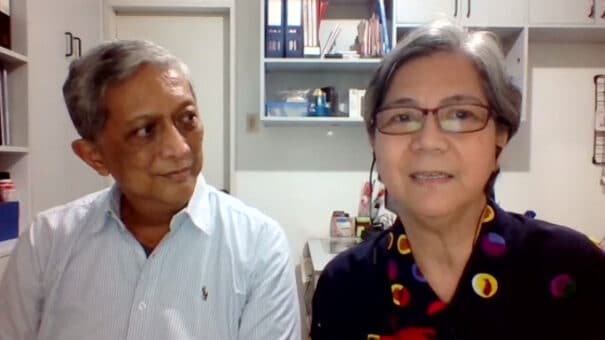
Vicky and Vic
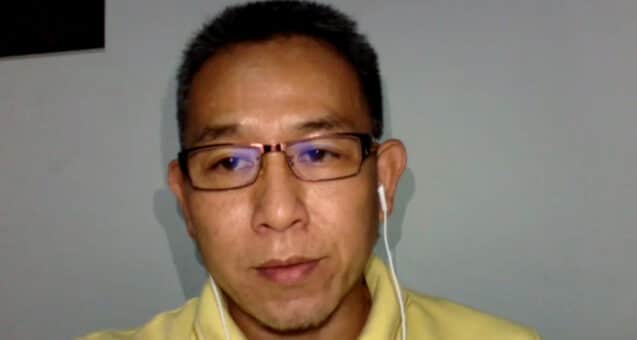
Somjit, a Buddhist from Thailand

Rassim, a Muslim from Algeria
 The second day of the General Assembly of the Focolare began with an ecumenical prayer presented by participants from various Churches. It was addressed to Jesus in his forsakenness on the cross, so that he would help each one to “grow in listening to one another”; teach us to “welcome together the Holy Spirit” and “the cry of today’s humanity” so as “to become instruments of unity”. Then there were further votes which had been put off from yesterday and which are necessary for adapting the regulation of the Assembly to an on-line format. So, the spiritual retreat for all the participants started a little late and it will finish on Wednesday 27th January. This is an essential moment in the Assembly, as it says in the Movement’s Statutes, “so that the voters…may be docile to the grace of the Holy Spirit.”
The second day of the General Assembly of the Focolare began with an ecumenical prayer presented by participants from various Churches. It was addressed to Jesus in his forsakenness on the cross, so that he would help each one to “grow in listening to one another”; teach us to “welcome together the Holy Spirit” and “the cry of today’s humanity” so as “to become instruments of unity”. Then there were further votes which had been put off from yesterday and which are necessary for adapting the regulation of the Assembly to an on-line format. So, the spiritual retreat for all the participants started a little late and it will finish on Wednesday 27th January. This is an essential moment in the Assembly, as it says in the Movement’s Statutes, “so that the voters…may be docile to the grace of the Holy Spirit.”  The first topic chosen, put the participants in front of what could be defined as the entrance key into the mysticism of Chiara Lubich: a solemn pact made by the foundress on 16th July 1949 with the politician and author Igino Giordani, co-founder of the Movement, in the Dolomites. In that pact – as was emphasized by Fr Fabio Ciardi, Oblate of Mary Immaculate and theologian in consecrated life – Chiara Lubich and Igino Giordani, asked Jesus who they had just received in the Eucharist to be the one to create unity between them. They asked him to use their full and mutual readiness to welcome the other, to value the thought of the other and in this way to open up a space to allow the Holy Spirit to enter.
The first topic chosen, put the participants in front of what could be defined as the entrance key into the mysticism of Chiara Lubich: a solemn pact made by the foundress on 16th July 1949 with the politician and author Igino Giordani, co-founder of the Movement, in the Dolomites. In that pact – as was emphasized by Fr Fabio Ciardi, Oblate of Mary Immaculate and theologian in consecrated life – Chiara Lubich and Igino Giordani, asked Jesus who they had just received in the Eucharist to be the one to create unity between them. They asked him to use their full and mutual readiness to welcome the other, to value the thought of the other and in this way to open up a space to allow the Holy Spirit to enter. 
Vicky and Vic

Somjit, a Buddhist from Thailand

Rassim, a Muslim from Algeria
 The second day of the General Assembly of the Focolare began with an ecumenical prayer presented by participants from various Churches. It was addressed to Jesus in his forsakenness on the cross, so that he would help each one to “grow in listening to one another”; teach us to “welcome together the Holy Spirit” and “the cry of today’s humanity” so as “to become instruments of unity”. Then there were further votes which had been put off from yesterday and which are necessary for adapting the regulation of the Assembly to an on-line format. So, the spiritual retreat for all the participants started a little late and it will finish on Wednesday 27th January. This is an essential moment in the Assembly, as it says in the Movement’s Statutes, “so that the voters…may be docile to the grace of the Holy Spirit.”
The second day of the General Assembly of the Focolare began with an ecumenical prayer presented by participants from various Churches. It was addressed to Jesus in his forsakenness on the cross, so that he would help each one to “grow in listening to one another”; teach us to “welcome together the Holy Spirit” and “the cry of today’s humanity” so as “to become instruments of unity”. Then there were further votes which had been put off from yesterday and which are necessary for adapting the regulation of the Assembly to an on-line format. So, the spiritual retreat for all the participants started a little late and it will finish on Wednesday 27th January. This is an essential moment in the Assembly, as it says in the Movement’s Statutes, “so that the voters…may be docile to the grace of the Holy Spirit.”  The first topic chosen, put the participants in front of what could be defined as the entrance key into the mysticism of Chiara Lubich: a solemn pact made by the foundress on 16th July 1949 with the politician and author Igino Giordani, co-founder of the Movement, in the Dolomites. In that pact – as was emphasized by Fr Fabio Ciardi, Oblate of Mary Immaculate and theologian in consecrated life – Chiara Lubich and Igino Giordani, asked Jesus who they had just received in the Eucharist to be the one to create unity between them. They asked him to use their full and mutual readiness to welcome the other, to value the thought of the other and in this way to open up a space to allow the Holy Spirit to enter.
The first topic chosen, put the participants in front of what could be defined as the entrance key into the mysticism of Chiara Lubich: a solemn pact made by the foundress on 16th July 1949 with the politician and author Igino Giordani, co-founder of the Movement, in the Dolomites. In that pact – as was emphasized by Fr Fabio Ciardi, Oblate of Mary Immaculate and theologian in consecrated life – Chiara Lubich and Igino Giordani, asked Jesus who they had just received in the Eucharist to be the one to create unity between them. They asked him to use their full and mutual readiness to welcome the other, to value the thought of the other and in this way to open up a space to allow the Holy Spirit to enter. 
Vicky and Vic

Somjit, a Buddhist from Thailand

Rassim, a Muslim from Algeria
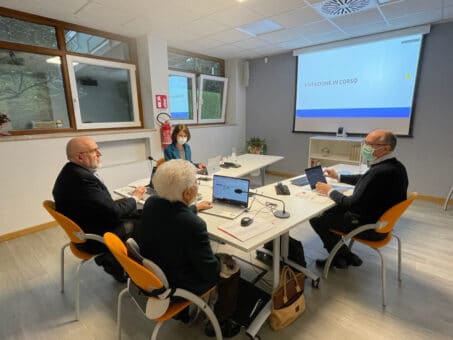
Jan 24, 2021 | Non categorizzato
General Assembly: Diary 1 – January 24, 2021 It has begun! The Focolare Movement General Assembly started at 12.30 (UTC +1). It has been long awaited for, and Focolare members and adherents from all over the world have participated in its preparation. It was scheduled to start at the beginning of September 2020, but had to be postponed because of the pandemic . It is now being held electronically. 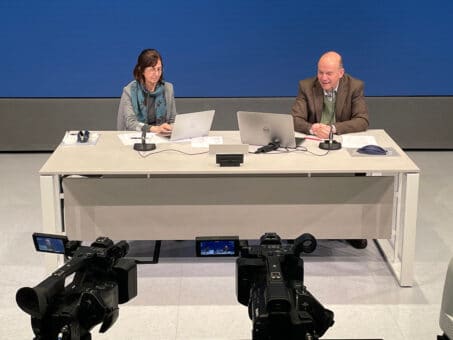 The choice of this date is very significant. Two days ago, on January 22, when it was Chiara Lubich’s birthday, the Movement marked the end of the birth centenary year of its founder.Today, January 24, it recalls the day when in 1944, Chiara ‘discovered’ the reality of Jesus Forsaken who became the ‘spouse of her soul’ and moved her to ‘seek him’ in all the suffering and pain of humanity and to rebuild relationships and bridges of unity. According to what is defined by its rules, the Assembly is “the first and most important governing body of the Focolare Movement”. 360 members are taking part in it; 139 are there by right, 181 have been elected and 40 have been invited by the President. Although these participants are in different places all over the world, they all entered the one big virtual hall, aware of the solemnity and importance of this moment. They are all contributing to build the worldwide lively family atmosphere , which is also present on the virtual platform.
The choice of this date is very significant. Two days ago, on January 22, when it was Chiara Lubich’s birthday, the Movement marked the end of the birth centenary year of its founder.Today, January 24, it recalls the day when in 1944, Chiara ‘discovered’ the reality of Jesus Forsaken who became the ‘spouse of her soul’ and moved her to ‘seek him’ in all the suffering and pain of humanity and to rebuild relationships and bridges of unity. According to what is defined by its rules, the Assembly is “the first and most important governing body of the Focolare Movement”. 360 members are taking part in it; 139 are there by right, 181 have been elected and 40 have been invited by the President. Although these participants are in different places all over the world, they all entered the one big virtual hall, aware of the solemnity and importance of this moment. They are all contributing to build the worldwide lively family atmosphere , which is also present on the virtual platform. 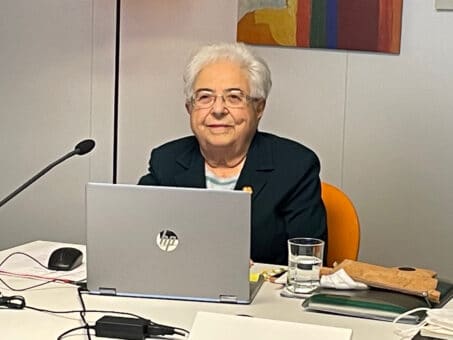 Maria Voce, the outgoing president, who is at the end of her second term, opened the Assembly with a solemn appeal. She invited the participants to put themselves in the attitude of Jesus at the Last Supper and wash one another’s feet. She said that this means being ready “to listen to one another, to understand one another, to go beyond differences, to become truly brothers, which means truly equal, truly with the highest dignity, which is the dignity that Jesus gives us because he makes us all children of God and brothers and sisters”.
Maria Voce, the outgoing president, who is at the end of her second term, opened the Assembly with a solemn appeal. She invited the participants to put themselves in the attitude of Jesus at the Last Supper and wash one another’s feet. She said that this means being ready “to listen to one another, to understand one another, to go beyond differences, to become truly brothers, which means truly equal, truly with the highest dignity, which is the dignity that Jesus gives us because he makes us all children of God and brothers and sisters”.  Rules being followed, today’s meeting included several voting sessions. In the first election, the two moderators who will coordinate and lead the work were chosen. They are Uschi Schmitt, a German doctor and Andrea Ponta, an Italian engineer. Then there was the approval of the electoral commission ; its members are Danilo Virdis, Flavia Cerino, Waldery Hilgeman, Laura Bozzi and Sister Tiziana Merletti, all residing in Italy. For legal reasons they are all present at the official seat of the Assembly, the International Focolare Centre in Rocca di Papa (Italy). In subsequent voting sessions, the Assembly approved the programme for these days and an amendment to the Movement’s General Statutes reducing the minimum number of councillors to be elected from 30 to 20. The three days of spiritual retreat for participants will begin tomorrow.
Rules being followed, today’s meeting included several voting sessions. In the first election, the two moderators who will coordinate and lead the work were chosen. They are Uschi Schmitt, a German doctor and Andrea Ponta, an Italian engineer. Then there was the approval of the electoral commission ; its members are Danilo Virdis, Flavia Cerino, Waldery Hilgeman, Laura Bozzi and Sister Tiziana Merletti, all residing in Italy. For legal reasons they are all present at the official seat of the Assembly, the International Focolare Centre in Rocca di Papa (Italy). In subsequent voting sessions, the Assembly approved the programme for these days and an amendment to the Movement’s General Statutes reducing the minimum number of councillors to be elected from 30 to 20. The three days of spiritual retreat for participants will begin tomorrow.
Focolare Communication Office
Jan 22, 2021 | Non categorizzato
22 January 2020 -22 January 2021: the Centenary year of Chiara Lubich’s birth ends today. 365 days, marked by the pandemic, quite different from what has been planned, but they were ones that opened new paths and new perspectives. ‘Celebrate to meet’ was the motto chosen for the Centenary of the birth of Chiara Lubich (1920-2020), the founder of the Focolare Movement. A year ago, there were many initiatives planned in different parts of the world to celebrate this event, little thinking that a pandemic would crop up and leave its mark on it, but indeed it did not stop it. In some cases, it has even enhanced the possibilities of ‘meeting’ Chiara. Let us go back to the beginning. The Centenary celebrations started on December 7, 2019 when the exhibition “Chiara Lubich World-City” was inaugurated at the Galleries in Trent, Lubich’s hometown. This inauguration was held under the patronage of the President of the Italian Republic, and it was promoted by the Historic Museum Foundation of the Trent region in collaboration with the Chiara Lubich Centre. Maria Voce, the President of the Focolare Movement was awarded the “Seal of St. Wenceslas” by the Autonomous Province of Trent on that same day. On the following day, a separate section of the exhibition, dedicated to the years 1949-1959, was inaugurated in Tonadico, in the municipality of Primiero San Martino di Castrozza (Italy). In the following weeks, similar exhibitions, enriched with the local touch, were launched in other countries. The exhibition in Nairobi (Kenya) highlights the Movement’s development in Africa, while a section of the one in Jerusalem is dedicated to Lubich’s relationship with this city and her dream that is now becoming a reality: a centre of spirituality, study, dialogue and formation for unity. Chiara Lubich was born on January 22. In 2020, precisely on this date, Rome celebrated her birth centenary through an evening dedicated to her, while it was twenty years before when the Italian capital conferred on her its honorary citizenship. Francesco Rutelli, the former mayor of Rome said: “On that 22nd January 2000, Chiara pronounced her committment to work more and better for Rome, by promoting concrete mutual love everywhere. What could be more beautiful than making her words our own, today?” A few days later, Sergio Mattarella, the President of the Republic addressed the gathering during the Centenary event that was held at the “Chiara Lubich” Mariapolis Centre in Cadine (TN). Besides Maria Voce, the president of the Movement, Jesús Morán, the co-president and the local authorities, there were more than 900 people present. Another 20,000 watched the live streaming transmission. In his speech Mattarella highlighted fraternity, applied to civil and political activity, as the distinctive feature of Chiara Lubich’s spirituality. Trent also provided the setting for the first part of the international conference: “A Charism at the service of the Church and humanity“. 7 Cardinals and 137 Bishops, friends of the Focolare Movement from 50 countries, participated in this conference, the second part of which was held in the international Focolare small town of Loppiano (Incisa Figline in Valdarno – Italy). In his message, Pope Francis warmly welcomed this conference, expressing “gratitude to God for the gift of the charism of unity through the witness and teaching (…) of Chiara Lubich”. During the same days, another event linked to the Centenary took place at the Mariapolis Centre in Castel Gandolfo. More than 400 religious men and women, consecrated and lay Catholics – including a group from the Orthodox Church – from 100 religious families in 33 countries were the protagonists at the event: “Charisms in Communion: Chiara Lubich’s Prophecy“, a workshop for dialogue among different charisms promoting communion between religious families through the spirituality of unity. Then the pandemic began to spread in countries all over the world. And this meant change even for the Centenary: some events had to be cancelled, others were moved to the web. The Trent exhibition has been enriched with a virtual itinerary. Thanks to an intergenerational team, the one planned in Brazil has been transformed, and an itinerary dedicated to Chiara Lubich is now being launched on social media through social profiles @focolaresbrasil (Facebook, Instagram and Youtube). Web-based initiatives have allowed many more people to visit the exhibitions dedicated to Lubich than the ones where one would have actually been able to go to a place to see. But there were other events that could still take place: such as the issue of two postage stamps dedicated to Chiara Lubich in the Czech Republic and the Competition for Italian schools on the theme: “One city is not enough”. A number of schools participated in this competition that was promoted by the Chiara Lubich/New Humanity Centre and by the Foundation of the Historical Museum of Trentino, in collaboration with the Ministry of Education, University and Research. The prize-giving ceremony will be held on February 16, 2021. The lockdown forced the International Focolare Centre in Rocca di Papa (Italy) to close its doors during certain periods in 2020. But since a few months, visits have been made possible in compliance with current health regulations. One of the most important visits was that of His Holiness the Patriarch of Constantinople Bartholomew I, who came to pray at the tomb of Chiara Lubich. There were also various new publications linked to the Centenary and events to present and promote them, both in presence and via web, namely: the twenty-ninth edition of the book “Meditations” by Chiara Lubich; two texts from the series “Works of Chiara Lubich” published by Città Nuova: “Conversations through link-ups” edited by Michel Vandeleene and “Talks in the civil and ecclesial sphere” edited by Vera Araújo; and the new biography about Chiara Lubich, the way of unity, between history and prophecy, written by Maurizio Gentilini. The English edition of the biography by Gentilini was also presented at the Italian Consulate in Mumbai, India, during a web event dedicated to Chiara Lubich’s centenary. Stefania Constanza, the Italian Consul in Mumbai, Vinu Aram, director of the Shanti Ashram in Coimbatore and Maurizio Gentilini took part in this web event. A “mixed” approach was chosen – partly in “presence” at Trent and partly online – for the study meeting about “Chiara Lubich in dialogue with the world. A linguistic, philological and literary approach to her writings”. This was organised by the Chiara Lubich Centre and the Study and Research Group on Linguistics, Philology and Literature of the Abbà School (Interdisciplinary Study Centre of the Focolare Movement) together with experts from various countries. Some of the papers are available in the section “Conference Documents” on the Chiara Lubich Centre website. On January 3, 2021, almost when the centenary year was coming to its end, Rai Uno, the main Italian television network presented the TV-movie “Chiara Lubich. Love conquers all”. The director of this movie was Giacomo Campiotti, while Cristiana Capotondi played the role of Chiara Lubich. 5 million 641 thousand viewers watched the film that was made by Rai Fiction and Eliseo Multimedia. Then, many others in other countries of the world were able to see it thanks to RaiPlay and Rai Italia. And today, January 22, 2021, the Centenary comes to its end. But does it really end? Recently, when Maria Voce, the president of the Focolare Movement spoke about this, she said that ‘the living encounter with Chiara cannot be limited to 100 years, to a centenary year. It is not over; it will continue as long as there are people from Chiara’s family on earth who will continue to witness that Chiara is alive, that Chiara’s charism still has something to say to the world”.
Anna Lisa Innocenti
Jan 21, 2021 | Non categorizzato
From 24th January to the 7th February the General Assembly of the Focolare Movement will take place on-line. It will be the moment to renew the roles of President, Co-President, the leadership team and will define the orientations and future projects for the next six years. The Assembly has been preceded by a series of formative and informative webinars in which all the communities of the Focolare world -wide have participated. Next Sunday, 24th January 2021 will mark the beginning of the Third General Assembly of the Focolare since the death of its founder Chiara Lubich. The Assembly which should have taken place at the beginning of September 2020, was postponed because of the pandemic. The Dicastery for the Laity, the Family and Life agreed to its postponement and that the whole event should take place on-line. Participation 362 people from all over the world will participate, representing the different cultures, generations, vocations, church membership and religious faiths that are present in the Focolare Movement. In order to encourage the involvement of as many people as possible, in February 2019, Maria Voce, the actual president, established a preparatory commission. They had the task of collecting suggestions for subjects to be discussed in the assembly, of identifying the names of candidates for the elections and to prepare the program. Elections of the president, copresident and councilors Using a system of on-line voting, on 31st January the election of the President[1] will take place. On February 1st, the Copresident will be elected and on February 4th there will be the elections of the councilors who collaborate with the President in the different roles in the governance of the Movement. She is the one, then, who distributes their different roles. Another task of the General Assembly is to decide on topics proposed by the Centre of the Movement, presented on the initiative of the President, of the General Council, of a section, branch, or movement. Each participant in the Assembly can suggest that other topics should be discussed. What subjects will be addressed? The more than 3,000 proposals that have arrived from the whole world, concerning the subjects to be dealt with in the Assembly and the directions that the Movement should follow in the next six years, are a true reflection of the liveliness of the people of the Focolare. They also demonstrate the awareness of the “change of an era” which is already in action, as Pope Francis said in 2018 when he met the Focolare Community in Loppiano. The many suggestions received have been divided into four main categories: the bringing up to date of the charism that has been handed down by the foundress; the culture that stems from the charism of unity; the answer to the environmental crisis and the pandemic; working together with the new generations. In a recent interview the current Copresident of the Focolare, Jesús Morán, said that there will also be space for dialogue and discussion concerning the topic of abuse, both in the six-yearly report of the President which will open the Assembly and in a specific talk of the Copresident. Although we represent a diversity of voices, yet there is the general need to determine new and up to date pathways of fraternity, capable of answering the challenges and the questions of humanity today at both a global and a local level. News and up-dates on the work of the Assembly will be available daily on the web page of the focolare and through future press releases. Stefania Tanesini – +39 3385658244 [1] As it says in the Statutes, the President of the Movement will always be a woman. This is to emphasise the Movement’s Marian profile and its predominantly lay characteristic and so “to preserve the design that God had on it since he entrusted its beginning and development to a woman.” As it says in the Statutes, “Hers is to be above all, a presidency of love because she must be the first in loving and therefore, in serving her own brothers and sisters, remembering the words of Jesus: “…whoever wishes to be first among you will be the slave of all” (Mk 10:44)
Jan 20, 2021 | Non categorizzato
An interview with Jesús Morán Cepedano, co-president of the Focolare Movement since 2014 and, as stated in the Movement’s statutes, responsible for moral and disciplinary issues. (The interview was conducted by Lorenzo Prezzi and Marcello Neri). As co-president of the Focolare Movement, on 18 September 2020 you met victims of abuse in Nantes, France. Can you tell us what happened and how you reacted? We were summoned by three of Jean-Michel Merlin’s victims to go and take stock of the situation and, in as far as it is possible, to conclude matters in the right way for them. Jean-Michel Merlin was a French focolarino who committed abuse and we have we have been in contact with these victims over recent years. It was a very strong experience for all of us in the Movement who were there and for me in particular because I met with living pain, the pure pain of those who have been abused. It was not the first time I had come into contact with victims of abuse but I had never before had such an intense awareness of their suffering. Furthermore, it was very painful for us to see the extent of our shortcomings – especially in the Merlin case. I say this in regard to the way we accompany the victims, accept responsibility for the situation, our disorientation as a Movement and, in this case, the delay in taking steps appropriate to the situation and the facts. In my opinion, it represented a watershed moment. Starting from this personal relationship with the victims, the vision of this drama changed a lot. After the Nantes meeting, the Movement intensified the work already begun in taking appropriate measures in situations of abuse. The president, Maria Voce, spoke and expressed her desire for total clarity. On what occasion? According to the Movement’s statutes, the co-president is the person who must deal with moral and disciplinary matters and ensure that the life in the Movement concurs with the doctrine of the Church. This is his specific task, but this is always done in unity and full agreement with the president. In this sense, Maria Voce has always supported all my work for many years. There have been two particular occasions when we have spoken together. The first time was on 26 March 2019, with a letter written to all the members of the Movement in which we publicly acknowledged our shortcomings, the fact that abuse had occurred within the Work of Mary and affirming our binding commitment, especially with the victims, to repair all that needed to be repaired. A second time, more recently, we spoke together again in a worldwide link up during which we publicly asked for forgiveness from all those who had been abused in the Focolare movement – whether this had been sexual abuse, child abuse or abuses of authority or power. What was the impact on the members of the Focolare and the Movement when they heard about such cases of abuse? The first reaction of many people was almost incredulity and bewilderment: the news made a very strong impact because many people considered it unthinkable that such painful actions could have occurred in a Movement characterised by mutual love, where relationships are of fundamental spiritual importance. There are ideas central to the Movement – such as seeing Jesus in the other and the life of unity – that are so contrary to any form of abuse that it could seem unthinkable. The process of entering into what Catherine of Siena called the “house of self-knowledge” was painful for the members of the Movement: that is, we discovered how inadequate we are in living out unity and our charism. But discovering one’s own weakness and starting again with a trust in God and in others that is no longer naive is a fundamental process. This is what many people in the Movement have experienced – and they have shared this with us in so many different ways. Are the resignations of the leaders of the Movement in France and the widely publicised case of Jean-Michel Merlin symptoms of some weaknesses in its internal formation processes? Obviously, yes. I said the same thing in a recent communication addressed to the members of the Movement. These situations of abuse have highlighted some weaknesses in formation programmes and, therefore, there is a need to take care of all stages of this process and pay great attention to the people involved. In particular, we need to carry out serious and genuine vocational discernment – and here I am referring not only to consecrated members but also to the vocation of anyone who wants to make a strong commitment in the Movement. Another aspect is that of taking better care of and accompanying the people who have roles of responsibility in the Movement – ensuring that they have the essential and holistic formation required, that they have adequate relational skills, that they are able to listen to and welcome other people and show respect. It is a matter of ensuring that our training programmes are effective. I think that for years we have placed total trust in the strength of spirituality and charism but this has sometimes led us to neglecting certain human aspects: we are now more aware of these human elements and take greater care of them. This is true both in view of the progress of human sciences and the advances in this field that are being made within the Church. When the floodgates of testimonies open, they multiply. Do you think that this could happen in the Movement too, i.e. that after the Merlin case, other allegations of abuse could emerge? Yes, we are already seeing this happen and we are preparing for it. More complaints are reaching us and we need the tools for real discernment. In some cases, it is more a matter of tension and conflict in relationships that cannot be considered as real abuse; in other cases, however, abuse of which we were unaware has taken place and such situations must be treated with due rigour and attention. This is a process of “purification of memory” that we want to live with an attitude of both humility and hope. What tools have you put in place to respond to these allegations of abuse within the Movement? We have two commissions to deal with such situations: a Commission for the safeguarding and protection of children and vulnerable adults which has been operating for some years now and is internally regulated – the regulations have recently been revised – and a Commission independent of the governing structures of the Movement for the protection of individuals, i.e. for adults who may suffer abuse with regard to authority, power and even of a sexual nature. This second instrument has been established more recently than the first Commission and, right now, after four years of activity, is drafting a new statute based on experience gained thus far. The final version will be made public as soon as it is ready. These two instruments act at central level; then, as far as the safeguarding of young peope and vulnerable adults is concerned, there are also regional commissions. We may also be going in this direction with regard to the protection of individuals in liaison with the central bodies. We are carrying out all this work in dialogue with the Dicastery for the Laity because we feel the need to constantly improve procedures so that it is clear how to approach these bodies, how to verify the various cases and ascertain if abuse has occured. We should also set up supervisory bodies at all levels. The committee for the safeguarding of young people and vulnerable adults has already done so. In these supervisory bodies there will be people from outside the Movement to ensure greater transparency. Can you say something about the mandate given to GCPS, the British company which has been asked to investigate all possible cases of abuse within the Movement? This is a commitment that we made to the victims with whom we met in Nantes. They asked for a completely independent commission to carry out an investigation – independent not only of the Movement’s own governance and composed of members who do not hold positions of leadership but also independent of the Movement as such, composed of people who are not involved with it in any way. After searching for a couple of months, we identified this British company which, for the moment, will only deal with the Merlin case because it is serious and we can learn from it. We will see how things develop: we have just given the mandate to the British company and we are beginning to work with them. The investigation process will probably take a year to complete: the facts need to be established and we still need to know the real number of cases; decisions will need to be taken and responsibilities will need to be assumed. What is the victims’ role in this internal analysis? The victims’ role is fundamental: for example, they will participate in the survey that we have entrusted to GCPS Consulting – especially in drawing up the operational agenda. The contact with the victims is ongoing and permanent. During this time, I have communicated with them about every step we have taken as a Movement and so they participate in the whole process. In as far as possible, we are always in contact in every case and every situation. Will the next General Assembly of the Movement, opening at the end of January, include some kind of report on these facts? Yes, the topic of abuse is included in the president’s report of her six-year term of office that will open the Assembly and there will also be an ad hoc intervention by the co-president. In this sense, the topic will not only be presented but also discussed in depth during the Assembly. You have emphasised the great trust in Chiara’s founding charism, a trust that, for example, was shared with a very wide audience in the recent television programme about Chiara Lubich. Is this patrimony being put to the test by these events and in what way can it be revived? The television programme about Chiara, although fiction with the limitations and merits of the genre, was a great gift for all of us, especially for the younger members of the Movement who did not know about Chiara Lubich’s early life. I think that the production succeeded in clearly highlighting the true fruit of the charism of unity, that is, a people born of the Gospel who live for universal sister and brotherhood, an emphasis on communion and fellowship, an openness to humanity and attention to the sufferings of the world. I believe these are very topical themes. We saw a fictional account of Chiara’s story but this can be a great stimulus to move forward in the incarnation of the charism both in the Church and in society. Fonte: http://www.settimananews.it/ http://www.settimananews.it/ministeri-carismi/focolari-abusi-uno-spartiacque/

 With the “It can be done!” project, it aims to create community microcredit groups whose members can support themselves to create jobs and, in a second phase, create a community microfinance group to support the growth of the expanding projects. Rose tells us: “We started our group 13 years ago. With the first loan I got, I remember very well that I didn’t do anything in particular, I bought clothes and goods that I needed, but the rest I wasted. At the beginning, I didn’t know how to start a business and what often happened was that I had difficulty paying back the loan I had received. Then I realised that I couldn’t keep taking out loans without a concrete project and I finally decided to start the restaurant project with the first 300,000 Fbu (150 €). I started buying pots and pans, dishes and gradually opened the restaurant. It was 2009, I didn’t have any workers yet. At that time, my children helped me in the kitchen and I went by bus to take the food to the city where I had my customers.
With the “It can be done!” project, it aims to create community microcredit groups whose members can support themselves to create jobs and, in a second phase, create a community microfinance group to support the growth of the expanding projects. Rose tells us: “We started our group 13 years ago. With the first loan I got, I remember very well that I didn’t do anything in particular, I bought clothes and goods that I needed, but the rest I wasted. At the beginning, I didn’t know how to start a business and what often happened was that I had difficulty paying back the loan I had received. Then I realised that I couldn’t keep taking out loans without a concrete project and I finally decided to start the restaurant project with the first 300,000 Fbu (150 €). I started buying pots and pans, dishes and gradually opened the restaurant. It was 2009, I didn’t have any workers yet. At that time, my children helped me in the kitchen and I went by bus to take the food to the city where I had my customers.  As I became known, the number of customers increased and I was able to hire workers. I am proud that through the salary they receive I also participate in the fulfilment of their dreams.” Rose, who is happy to have embarked on this path, today manages to provide a salary for five other families besides her own. Now she would like to improve and expand her business, for example by renting a bigger premises, where she could cook and reduce the running costs of the restaurant and travel expenses. It is a very brave decision because there is a big investment involved and Rose does not have the collateral or the guarantees needed to access a loan from any bank. And it is for Rose and many other people who, like her, would like to expand their businesses that the AMU and CASOBU project was set up, supporting the start-up of a community microfinance institution to offer savings and credit services to people with big dreams but who still today cannot access banks. To support the project, click here
As I became known, the number of customers increased and I was able to hire workers. I am proud that through the salary they receive I also participate in the fulfilment of their dreams.” Rose, who is happy to have embarked on this path, today manages to provide a salary for five other families besides her own. Now she would like to improve and expand her business, for example by renting a bigger premises, where she could cook and reduce the running costs of the restaurant and travel expenses. It is a very brave decision because there is a big investment involved and Rose does not have the collateral or the guarantees needed to access a loan from any bank. And it is for Rose and many other people who, like her, would like to expand their businesses that the AMU and CASOBU project was set up, supporting the start-up of a community microfinance institution to offer savings and credit services to people with big dreams but who still today cannot access banks. To support the project, click here 


 An international conference “
An international conference “ The program had four sections: historical, literary, socio-political and the fourth dedicated to other major 20th Century figures in order to analyze possible similarities and convergence with Chiara Lubich’s thought. Such a variety of perspectives, with contributions from academics of various disciplines, each with their own cultural approach, has permitted a deeper, more mature reflection and understanding of the historic experience itself and of Chiara Lubich’s thought, as well as a greater appreciation of her intellectual, spiritual and existential legacy. A comparison with other leading figures of the 20th century proved equally illuminating, covering contemporary protogonists such as Dietrich Bonhoeffer, Simone Weil, Mahatma Gandhi, Giorgio La Pira, Martin Luther King, Michail Gorbaciov. Chiara Lubich may not have met them directly, but she engaged with their writings and thought at a distance, with a shared passion for humanity and its future, revealing ideals and intuitions with evident features in common. The academic papers prepared by academics from around the world, were introduced by keynote speeches from Michel Angel Moratinos (High Representative for the United Nations Alliance of Civilizations) and historian Andrea Riccardi, founder of the Community of Sant’Egidio. Theologian and spiritual son of Chiara, Piero Coda brought the convention to a close.
The program had four sections: historical, literary, socio-political and the fourth dedicated to other major 20th Century figures in order to analyze possible similarities and convergence with Chiara Lubich’s thought. Such a variety of perspectives, with contributions from academics of various disciplines, each with their own cultural approach, has permitted a deeper, more mature reflection and understanding of the historic experience itself and of Chiara Lubich’s thought, as well as a greater appreciation of her intellectual, spiritual and existential legacy. A comparison with other leading figures of the 20th century proved equally illuminating, covering contemporary protogonists such as Dietrich Bonhoeffer, Simone Weil, Mahatma Gandhi, Giorgio La Pira, Martin Luther King, Michail Gorbaciov. Chiara Lubich may not have met them directly, but she engaged with their writings and thought at a distance, with a shared passion for humanity and its future, revealing ideals and intuitions with evident features in common. The academic papers prepared by academics from around the world, were introduced by keynote speeches from Michel Angel Moratinos (High Representative for the United Nations Alliance of Civilizations) and historian Andrea Riccardi, founder of the Community of Sant’Egidio. Theologian and spiritual son of Chiara, Piero Coda brought the convention to a close. 
 Aljucer is a small town in the Murcia region of southern Spain. Twelve years ago, members of the local Focolare community asked themselves what they could do to make their commitment to living fraternity a reality which impacts on people in the local area which is located in fertile land close to the Mediterranean Sea, but which also has its fair share of large and small emergencies. The first step was to find a way to create opportunities for participating in the life of the town which were more open and inclusive. So, in collaboration with other groups, they set up a cultural association called ‘ACLF Aljucer’. “Our first experience as an association,” they said, “was to bring together various mayors who had been in office in the city during the Spanish democratic period. Inviting them was not easy, but in the end they all agreed to participate. They had an opportunity to introduce themselves, recall the time when they held office and, in some cases, reconcile with one another. In the end, they thanked us and encouraged us to continue in this vein.”
Aljucer is a small town in the Murcia region of southern Spain. Twelve years ago, members of the local Focolare community asked themselves what they could do to make their commitment to living fraternity a reality which impacts on people in the local area which is located in fertile land close to the Mediterranean Sea, but which also has its fair share of large and small emergencies. The first step was to find a way to create opportunities for participating in the life of the town which were more open and inclusive. So, in collaboration with other groups, they set up a cultural association called ‘ACLF Aljucer’. “Our first experience as an association,” they said, “was to bring together various mayors who had been in office in the city during the Spanish democratic period. Inviting them was not easy, but in the end they all agreed to participate. They had an opportunity to introduce themselves, recall the time when they held office and, in some cases, reconcile with one another. In the end, they thanked us and encouraged us to continue in this vein.”  This experience led to the idea of holding a meeting every year to bring politicians and citizens closer together which is how “In Our Hands” and “The Speaker” were born. The first of these meetings which have now been running for twelve years,” they explained, “took place before the elections and offered a safe space where dialogue between citizens and candidates was encouraged. In the second event, a topical issue was chosen, and politicians and citizens were given the floor. Speeches and proposals are collected, published on the Association’s website and offered as contributions to the City Council. Some of the topics proposed have been studied in depth and, from that experience, the idea of a Cultural Centre under the authority of the Municipality arose which is now becoming a reality. The Association also puts on cultural activities, such as concerts, book presentations and exhibitions. And there is also “Aljucereños”, an event where personalities from the world of culture, music, art, literature, politics, economics and medicine talk about their life experiences and the motivation behind their choices. They also hold monthly meetings with other assocations and organise an annual Associations’ Fair.
This experience led to the idea of holding a meeting every year to bring politicians and citizens closer together which is how “In Our Hands” and “The Speaker” were born. The first of these meetings which have now been running for twelve years,” they explained, “took place before the elections and offered a safe space where dialogue between citizens and candidates was encouraged. In the second event, a topical issue was chosen, and politicians and citizens were given the floor. Speeches and proposals are collected, published on the Association’s website and offered as contributions to the City Council. Some of the topics proposed have been studied in depth and, from that experience, the idea of a Cultural Centre under the authority of the Municipality arose which is now becoming a reality. The Association also puts on cultural activities, such as concerts, book presentations and exhibitions. And there is also “Aljucereños”, an event where personalities from the world of culture, music, art, literature, politics, economics and medicine talk about their life experiences and the motivation behind their choices. They also hold monthly meetings with other assocations and organise an annual Associations’ Fair. 







 No less than 73 people comprise the technical team of the Focolare General Assembly. Many are physically present in the Movement’s international centre at Rocca di Papa in Italy, while others collaborate remotely from many parts of world including Brazil, the Philippines, France, Guatemala, Britain, Ireland, Italy, the Netherlands, Spain, Thailand and USA. Twenty I.T. experts are working on the web pages and various apps. 14 hosts, divided into two teams, run all the various video-conferences. 34 translators in 7 countries guarantee the participants have simultaneous translations in 5 languages (French, English, Italian, Portughese and Spanish). Then there is the 5-person squad responsible for the general coordination of all the technical teams. But it’s more than a network of collaborators or technical experts, according to Francesco Mazzarella, one of the video-conference hosting team working from Sicily. He writes:
No less than 73 people comprise the technical team of the Focolare General Assembly. Many are physically present in the Movement’s international centre at Rocca di Papa in Italy, while others collaborate remotely from many parts of world including Brazil, the Philippines, France, Guatemala, Britain, Ireland, Italy, the Netherlands, Spain, Thailand and USA. Twenty I.T. experts are working on the web pages and various apps. 14 hosts, divided into two teams, run all the various video-conferences. 34 translators in 7 countries guarantee the participants have simultaneous translations in 5 languages (French, English, Italian, Portughese and Spanish). Then there is the 5-person squad responsible for the general coordination of all the technical teams. But it’s more than a network of collaborators or technical experts, according to Francesco Mazzarella, one of the video-conference hosting team working from Sicily. He writes:  Behind the online Assembly, a group of people around the world, the so-called technical experts, have been ‘meeting’. We’ve been getting to know each other and creating a bond far beyond the technical aspect because there’s been a spiritual sharing among us too. It’s come about gradually, through a process of what we could call ‘techno-relationship’. Most of the time, we don’t think about all that has to happen before an event can take place. Today, the challenge goes via the internet, with the all uncertainties and challenges involved, and with all the possibilities it contains too. To manage these moments online without seeing each other face to face, without being able to physically shake each other by the hand, is the real challenge of this Assembly.
Behind the online Assembly, a group of people around the world, the so-called technical experts, have been ‘meeting’. We’ve been getting to know each other and creating a bond far beyond the technical aspect because there’s been a spiritual sharing among us too. It’s come about gradually, through a process of what we could call ‘techno-relationship’. Most of the time, we don’t think about all that has to happen before an event can take place. Today, the challenge goes via the internet, with the all uncertainties and challenges involved, and with all the possibilities it contains too. To manage these moments online without seeing each other face to face, without being able to physically shake each other by the hand, is the real challenge of this Assembly. 










 The second day of the General Assembly of the Focolare began with an ecumenical prayer presented by participants from various Churches. It was addressed to Jesus in his forsakenness on the cross, so that he would help each one to “grow in listening to one another”; teach us to “welcome together the Holy Spirit” and “the cry of today’s humanity” so as “to become instruments of unity”. Then there were further votes which had been put off from yesterday and which are necessary for adapting the regulation of the Assembly to an on-line format. So, the spiritual retreat for all the participants started a little late and it will finish on Wednesday 27th January. This is an essential moment in the Assembly, as it says in the Movement’s Statutes, “so that the voters…may be docile to the grace of the Holy Spirit.”
The second day of the General Assembly of the Focolare began with an ecumenical prayer presented by participants from various Churches. It was addressed to Jesus in his forsakenness on the cross, so that he would help each one to “grow in listening to one another”; teach us to “welcome together the Holy Spirit” and “the cry of today’s humanity” so as “to become instruments of unity”. Then there were further votes which had been put off from yesterday and which are necessary for adapting the regulation of the Assembly to an on-line format. So, the spiritual retreat for all the participants started a little late and it will finish on Wednesday 27th January. This is an essential moment in the Assembly, as it says in the Movement’s Statutes, “so that the voters…may be docile to the grace of the Holy Spirit.”  The first topic chosen, put the participants in front of what could be defined as the entrance key into the mysticism of Chiara Lubich: a solemn pact made by the foundress on 16th July 1949 with the politician and author Igino Giordani, co-founder of the Movement, in the Dolomites. In that pact – as was emphasized by Fr Fabio Ciardi, Oblate of Mary Immaculate and theologian in consecrated life – Chiara Lubich and Igino Giordani, asked Jesus who they had just received in the Eucharist to be the one to create unity between them. They asked him to use their full and mutual readiness to welcome the other, to value the thought of the other and in this way to open up a space to allow the Holy Spirit to enter.
The first topic chosen, put the participants in front of what could be defined as the entrance key into the mysticism of Chiara Lubich: a solemn pact made by the foundress on 16th July 1949 with the politician and author Igino Giordani, co-founder of the Movement, in the Dolomites. In that pact – as was emphasized by Fr Fabio Ciardi, Oblate of Mary Immaculate and theologian in consecrated life – Chiara Lubich and Igino Giordani, asked Jesus who they had just received in the Eucharist to be the one to create unity between them. They asked him to use their full and mutual readiness to welcome the other, to value the thought of the other and in this way to open up a space to allow the Holy Spirit to enter. 


 The choice of this date is very significant. Two days ago, on January 22, when it was Chiara Lubich’s birthday, the Movement marked the end of the birth centenary year of its founder.Today, January 24, it recalls the day when in 1944, Chiara ‘discovered’ the reality of Jesus Forsaken who became the ‘spouse of her soul’ and moved her to ‘seek him’ in all the suffering and pain of humanity and to rebuild relationships and bridges of unity. According to what is defined by its rules, the Assembly is “the first and most important governing body of the Focolare Movement”. 360 members are taking part in it; 139 are there by right, 181 have been elected and 40 have been invited by the President. Although these participants are in different places all over the world, they all entered the one big virtual hall, aware of the solemnity and importance of this moment. They are all contributing to build the worldwide lively family atmosphere , which is also present on the virtual platform.
The choice of this date is very significant. Two days ago, on January 22, when it was Chiara Lubich’s birthday, the Movement marked the end of the birth centenary year of its founder.Today, January 24, it recalls the day when in 1944, Chiara ‘discovered’ the reality of Jesus Forsaken who became the ‘spouse of her soul’ and moved her to ‘seek him’ in all the suffering and pain of humanity and to rebuild relationships and bridges of unity. According to what is defined by its rules, the Assembly is “the first and most important governing body of the Focolare Movement”. 360 members are taking part in it; 139 are there by right, 181 have been elected and 40 have been invited by the President. Although these participants are in different places all over the world, they all entered the one big virtual hall, aware of the solemnity and importance of this moment. They are all contributing to build the worldwide lively family atmosphere , which is also present on the virtual platform.  Maria Voce, the outgoing president, who is at the end of her second term, opened the Assembly with a solemn appeal. She invited the participants to put themselves in the attitude of Jesus at the Last Supper and wash one another’s feet. She said that this means being ready “to listen to one another, to understand one another, to go beyond differences, to become truly brothers, which means truly equal, truly with the highest dignity, which is the dignity that Jesus gives us because he makes us all children of God and brothers and sisters”.
Maria Voce, the outgoing president, who is at the end of her second term, opened the Assembly with a solemn appeal. She invited the participants to put themselves in the attitude of Jesus at the Last Supper and wash one another’s feet. She said that this means being ready “to listen to one another, to understand one another, to go beyond differences, to become truly brothers, which means truly equal, truly with the highest dignity, which is the dignity that Jesus gives us because he makes us all children of God and brothers and sisters”.